|
Spring Valley Elementary School, circa 1950 Photo credit: SAN FRANCISCO HISTORY CENTER, SAN FRANCISCO PUBLIC LIBRARY https://sfpl.org/locations/main-library/historical-photographs Master Teacherby Gloria Delgado Author's Note: All names but mine have been changed. I was 21, had earned my BA in Spanish at the San Francisco College for Women (aka Lone Mountain College), and was now working through my student teaching requirements with the goal of earning an elementary credential. Adding to the normal pressures and challenges involved, I was also overwhelmingly aware that, if successful, I would supposedly be the first Mexican student from Lone Mountain to earn a teaching credential. This made me a role model for some of my Latina lower classmates, who constantly questioned me about the realities of student teaching. They were trusting in me, relying on me to help them through the same experience. I was also engaged, and planning a late December wedding. Lone Mountain’s education department, although well-intentioned and nurturing in many ways, was still mired in the outmoded attitudes and mores of the 1940’s and false façades of the 1950’s. Our professors sometimes put more emphasis on proper appearance and demeanor, what we students called their “tea, hat and white gloves syndrome,” than they did in preparing us to deal with the actual education system. Student teachers had no written code of rights or duties, only unclear and nebulous obligations. One huge failing was that we had to complete our student teaching, one or more years at best, before even stepping into a classroom. Our entire education system was completely unprepared for the changing times and upcoming social turmoil of the 1960’s. The first half of my student teaching had been a delight. I loved being part of that third-grade classroom of students from Grover Cleveland Grammar School. My master teacher, a warm-hearted and generous woman, had encouraged and advised me, giving me many opportunities to work with individuals or with the entire class, a chance to develop a rapport with the children. I was even assigned a special project, working with a young Chinese boy who refused to speak in school. At the end of my time this master teacher and other reviewers gave me an excellent evaluation, and she and the students said their goodbyes with embraces and best wishes for the future. Enthused with how my experience had gone so far, I was eagerly looking forward to my second half of student teaching, this time in the middle of San Francisco’s Nob Hill and Chinatown neighborhoods. My next assignment would be Spring Valley Grammar School's fifth-grade classroom, and my new master teacher, Mrs. Butler. Spring Valley School had a long and troubled history. The oldest existing public school in San Francisco, first established around 1852, then relocated and rebuilt at its current address after the 1906 earthquake, during its early years was reserved for whites only. When in 1885 a young Chinese girl, Maggie Tape, won a California Supreme Court suit for the right to attend Spring Valley, the San Francisco School Board simply kept her name at the bottom of a never-ending wait list, and built another public school to accommodate “other” races. The Tape family finally moved across the bay to Berkeley so Maggie could attend school there. I knew something of the school’s history, but this was now 1962, and I was comfortable with the assignment and with the area. It was the neighborhood where my paternal grandparents had lived, met and married in 1904, and the narrow, steep streets and crowded neighborhood were familiar to me. Getting to the site involved a long commute, two buses plus cable car, then a stiff walk up and down hills all while wearing skirts and heels, as required by Lone Mountain’s strict dress code, which forbid the wearing of jeans or slacks and required high heeled dress shoes. Anything else would have been considered inappropriate or unprofessional attire. Situated in the middle of the block, surrounded by old wood houses and stucco apartments, Spring Valley Grammar School was a several-storied brick and cement building with large windows and stone half-columns at the front entrance. Around the structure were narrow asphalt play areas barely big enough to hold all the students at recess or lunchtime. I don’t remember a cafeteria. Half a block up from the school on one corner was a small Chinese restaurant; at lunchtime both students and staff formed long lines outside, waiting to buy a plate of rice or noodles, vegetables and meat. For two dollars, one order provided enough lunch for several to share. At this time the school population was about 98% Chinese; the principal, teachers, yard supervisors, secretaries were all white females. The only adult male at the school was the janitor, also white. I signed the log-in book before meeting with the principal, Mrs. Mitchell. She welcomed me with a warm smile, escorted me to the fifth-grade classroom, introduced me to Mrs. Butler, my new master teacher, then left. Upon the principal’s departure, Mrs. Butler appeared somewhat imposed upon by this unwelcome intrusion, this interruption of her routine. She coolly, slowly looked me up and down with what seemed barely disguised contempt, then introduced me to her students. “Class, this is Miss—What did you say your name was?—Of course. Miss Colville, Miss Cavi—How do you pronounce that again? Oh. Yes. Miss Cal-vee-yuh, who will be with us for a few weeks. She wants to learn how to be a teacher.” Then, in an undertone, I was dismissed: “Go to the back of the classroom, take a seat, and just watch what I do.” “Just watch what I do.” And that’s all I did, three half-days a week, for what seemed unending hours; I watched her do whatever she did—but without taking a seat. There was no chair, no stool, no extra desk for me to use, and none was ever provided all the months that followed. I was not allowed to speak with or interact with any of the students when Mrs. Butler was present. Banished to “the back of the bus,” as it were, I stood in uncomfortable high heels in a corner by one of the two doors to the cloakroom or leaned against the middle of the wall. These initial long hours of standing and watching did prove valuable. By moving casually from one side of the classroom to the other, I managed to get glimpses of the students’ faces, and in three days came to know them all by name and personality. This was the era when the Asian school population, still labeled “the model minority” by 1950’s society, had names like Alexander, Lily, or William; none used a Chinese given name in school. All the fifth graders at Spring Valley School were attentive, polite, clean, neatly dressed, healthy, and apparently happy; that is, all except for one—Marcella, the only white girl in the class, the only white girl in the entire school. Mrs. Butler was a slightly stout, imposing woman in her late 50’s with meticulously waved short dyed blonde hair, icy blue eyes, and perfect makeup. Not one for riding buses and cable cars, she rode to and from campus in a Yellow Cab, arriving and departing always on schedule. Impeccably, even modishly attired, she would sit unmoving behind her desk for long periods of time, on occasion rising majestically from her chair to write on the chalkboard or to lecture. Everything about her was carefully controlled—her appearance, her demeanor, her voice, her movements. Mrs. Butler never rushed, never raised her voice in excitement, joy, or anger; everything she did was dignified, reserved, calculated. Her teaching style, lectures, even her occasional compliments to the students acknowledging good work or a successful grade, were muted. The fifth-grade classroom was attractive, a large turn-of-the-century style square high-ceilinged room filled with rows of wooden desks lined up in orderly fashion. On the left side of the room light streamed through several huge waist-to-ceiling stacked wood windows that had to be opened or closed against the changing weather with a long wooden pole, an iron hook on one end. Leafy green plants, cared for by the students, sat on the wide windowsills. On the opposite wall were two doors with transom windows. Black chalkboards covered the remaining space. A dark upright piano, apparently never touched, stood in one corner of the front wall. At the rear of the classroom was the cloakroom, a door at each end. Maps, globes, flags, some bookcases, a black clock hung high filled the space. The large oak desk presiding at center front was topped with neatly stacked books, notes, daily lesson plans. A slender vase by the handbell occasionally held flowers Mrs. Butler or a student would bring, pastel blossoms, a white camellia, or a sprig of the dainty pink sweet-fragranced Cécile Brünner roses that once flourished throughout all old San Francisco neighborhoods. But the most notable article on Mrs. Butler’s otherwise nondescript desk, the only object reflective of Chinese culture in the classroom, was the reclining figure of a jovial Chinese god with a bald head and fat round belly. This large carved wooden figure was obviously valuable. Placed to the far-left front edge of the oak desk with his back to Mrs. Butler, the laughing god faced the rows of student desks. “Who is this? Is this Buddha?” I seized the opportunity to ask the class one day when Mrs. Butler was called out for a moment. “Why, he’s not Buddha, he’s the Laughing God, Budai,” the children, now surrounding me, eagerly explained, “the god who brings good fortune. His big bag holds everything we need for everyday life. He’s the happy god who protects all his children. Rub his belly,” they insisted, “it brings you good luck!” And so, I rubbed Budai’s belly daily, asking for protection and good fortune for the children; and for me, the strength to get through another day watching Mrs. Butler. *** Later one afternoon Mrs. Butler and I were alone in the classroom when she asked, with no preamble: “Where were your parents born, Miss Cal-villee-yuh?” Knowing this was code for …what are you, I can’t figure you out, and not knowing really bothers me… and offended, not by the question, but by her manner, I deliberately and literally answered the question she asked, and not the question she wanted to ask. “My father was born in Guadalajara, Jalisco, Mexico, and my mother on Ewa Plantation, Oahu, Hawai’i. “Oh, so you’re Hawaiian! No wonder you look so exotic!” “My mother is not Hawaiian, she is Puerto Rican, born in Hawai’i because that is where her parents were living at the time; that makes me Mexican and Puerto Rican.” Then, still feeling the sting of her irritating use of the word exotic, in a not very subtle attempt to redirect the conversation I asked her about the figure on her desk, not revealing that the students had already introduced us. “It was a ‘welcome to our school’ gift given to me by the Chinese parents when I first started teaching at Spring Valley.” Her bland, rote monotone response to my question lacked warmth, a sense of gratitude, enthusiasm, or sensitivity to what Budai obviously meant to her students and their families. They had given her part of themselves, part of their culture. Did she see Budai as more than just a block of wood, did she understand, did she even care? No. She had referred to Budai as it, not as he. Then she said: “You know, dear, you really should smile more; you would be so much more attractive.” I was put firmly back in my place. Mrs. Butler turned and sat down at her desk; the children returned from recess; lessons resumed. Reflecting later on our exchange, I had the strong overwhelming intuition that Miss Butler intensely disliked the figure of Budai, finding him too exotic, too foreign—like me. But the figure was something she could not easily dispose of, not if she wanted to keep her job and the approval of the parents. Budai and I both might be thorns in her side. One thought followed another. Did she dislike her job? Had society changed too quickly for her, made her feel trapped at Spring Valley, helpless, unwilling, unable to adapt or cope? Did she even like her students? I already knew, even after a few days, that she intensely disliked, possibly even hated me. Did she, deep inside, dislike her students? But why? For being unworthy of her talents? For being different, exotic, Asian? These unwelcome intuitions of mine were sickening and ugly; and I tried to suppress them. Still stunned by their impact, stomach churning, thoughts and speculations reeling, I took up my usual post standing at the back of the class. *** Some of the other teachers would occasionally talk with me when I spent time in the faculty lounge; for the most part I was ignored. “Oh, so you’re the new student teacher” was the comment I heard most frequently that first week. “Hmm… You know, of course, that she didn’t want another student teacher. You were forced on her, just like the previous one, that young black woman. She didn’t last long either, poor thing.” And when Mrs. Butler walked into the lounge the conversation instantly shifted, and I became invisible. With time enough to reflect on what had been said, I realized that Mrs. Mitchell’s accompanying me herself to Mrs. Butler’s classroom, and her introduction of me to Mrs. Butler in the presence of the class, was not the generous, friendly gesture I had initially taken it to be, but was the outcome of a clash of wills between the two women. And Mrs. Mitchell, as principal, had won that particular battle. Mrs. Butler could not easily dispose of me if she wanted to keep her job and the goodwill of her employer. On my way home one afternoon that same first week I was headed to the front entrance when the janitor, still carrying the mop and bucket he had just used to clean the floors, called out to me. “Miss! Say, Miss! You the new student teacher?” he asked, turning his head back and forth, apparently checking the hall to see if anyone else was around to hear. I nodded, uneasy, unsure where this was going. “Watch out for her, that damn bitch, she’ll try to do something to you, she’ll try to hurt you.” “Who will?” But I already knew the answer. “Butler, of course, who else!” He smirked, looking me up and down, appraising me almost as coolly as Mrs. Butler had done that first day. This one won’t make it, either… Shaken, but attempting to conceal it, I only nodded, gave him an icy “Thank you,” knowing that a new student teacher shouldn’t be seen alone in conversation with a janitor. I left for home, thinking: I know she dislikes me, but what could she possibly do to me, and why should she bother? I’m nothing but a very small temporary thorn in her side. At first, in an attempt to bring down the barriers between us, I tried to engage Mrs. Butler in conversation during the breaks in the teachers’ lounge. I assured her of my willingness to tutor students needing assistance with math problems or reading, to help with anything, anything at all. But the days went by; nothing worked, nothing changed. She terminated any thought or suggestion of mine with the same admonition: “No. Just watch me and see how it’s done.” *** Two weeks into the semester, while in the office signing the attendance book, I was surprised to see a familiar face. Mary Henley and I had been through grammar and high school together. “I’m the fourth-grade teacher now,” she told me, and after learning I was the new student teacher, she whispered: “I’ve got to leave now, I don’t want to be late, goodbye,” then abruptly turned and went off down the hall to join her class. What was that all about? Although we were not friends, we had always been on friendly terms, and there was still plenty of time remaining before the first bell. Mary was a shy and quiet person, but to witness this timid, even fearful behavior of hers was unsettling. Was it the mention of Mrs. Butler as my master teacher? I never spoke with Mary again, and only caught occasional glimpses of her across the auditorium during school assemblies. Mary never joined the others in the teachers’ lounge, never lined up for lunch at the corner, never seemed to leave her classroom. I wondered what, or who, she was avoiding besides me. It would have been nice to have someone to talk with, to see a friendly face, to have an ally. It was all so strange; Mary too had almost disappeared, become invisible. Was Mary afraid of Mrs. Butler? I would never know. Something was very wrong here; was it the school, was it Mrs. Butler, or just me? *** “Just watch what I do.” And so, I continued. Standing, I watched her for days, then weeks on end, gradually learning that something was indeed wrong, but it was difficult to describe at first, difficult to put into words. Yes, something was wrong, and it seemed to begin here, in this classroom. I watched and learned. Mrs. Butler did nothing overt, nothing that would ever leave her open to criticism. Her interactions with the students were to the casual outside observer always pleasant, mellow, full of compliments. She was not one to lose her temper. She was always so subtle in her methods, in her cruelty. Mrs. Butler’s particular type of cruelty was new to me, and difficult to describe. It was not what she said or did, but how she said or did things, with an ease far beyond my experience. Most of the wounds she inflicted were quick tiny jabs, like mosquito stings, almost invisible on the surface, but nevertheless capable of leaving behind deep and festering infections. Mrs. Butler pretended not to notice the effect her hints and insinuations had on the students; but I noticed; I watched. She always said and did things deliberately, never carelessly, or half-way, or by accident. Her techniques were not as effective on the boys who, at this still mostly innocent age of nine or ten, more easily managed to ignore them or shrug them off. Anyway, Mrs. Butler seemed to prefer to manipulate the girls. This morning, Louise was her focus, her tool. “Look, everyone, Louise is so pretty today in her new dress! Louise always looks so nice, her clothes are always so beautiful!” All eyes turned as one to gaze at Louise, who, head down, hands clasped together in her lap, smiled modestly, basking in the compliments. Subtly made conscious that Louise had …something… that they lacked, the other girls’ eyes, glazed and clouded, went blank for long silent seconds. The girls were still too open-hearted to actively dislike Louise, or Celia, or Sara, whoever was singled out to be complimented for the wrong reasons, whoever happened to be Mrs. Butler’s chosen focus, her tool, the target around whom she created and fomented negative feelings within the group. They didn’t actually dislike each other, not yet; but I could sense dislike and jealousy and hubris building and growing, little by little, created, cultivated and maneuvered by Mrs. Butler. Louise in particular didn’t need to hear such frequent compliments. The treasured daughter of a comfortable family, Louise was a nice girl, a beautiful child who always arrived at school wearing expensive new dresses, her long straight gleaming black hair carefully arranged and tied back in bright ribbons. Excessive praise, and being singled out for her attractive appearance day after day could only do her harm—but could this really be Mrs. Butler’s goal, to cause harm to Louise, to the children? I was stunned, ashamed of my suspicions. They filled me, nevertheless, and couldn’t be ignored. Marcella, the only white child remaining in the ever-shifting class, was Mrs. Butler’s most frequent target, the daily recipient of twisted compliments. Mrs. Butler hardly bothered to disguise the scorn and contempt she felt for the girl. Perhaps she considered Marcella to be too simple, too easy a target, and unworthy of her subtlety? The daughter of a poor family, this clumsy, gangly girl was never complimented on her dresses, never came to school wearing ribbons. With her blonde hair chopped off just below her ears, ends carelessly pulled back in a rubber band, she was always dressed in clean but threadbare old clothes. She spoke, when pressed, with a soft southern country drawl. Apparently still in the awkward stages of early puberty, a full head taller than her classmates, Marcella lacked the easy grace and charming manners of her quicker, more coordinated, more sophisticated classmates. Mrs. Butler began: “Look, everyone, Marcella has finally managed to—finish her work on time—make only three mistakes on her test—skip rope for one minute before tripping—get a C—catch the ball and only drop it once…” Every day brought fresh opportunities to single out Marcella in this negative way. Today it was a class game of basketball. “Look, class, Marcella finally threw the ball into the basket! She found the basket! Let’s everyone clap for her. Yeah, Marcella!” “Yeah, Marcella!” the class parroted Mrs. Butler, clapping in unison, in bored, orchestrated applause lasting only a few seconds. The unfortunate girl, hair coming loose from the rubber band, strands flying out in all directions after her strenuous efforts, and horribly embarrassed at this additional reminder of her general ineptitude, looked down at the ground, her body writhing, her mouth twisted into a caricature of a smile, the toe of one worn shoe grinding into the ground, as if digging an imaginary hole in which to hide. The bell rang, the children gathered to return to the classroom. Marcella paused, hanging behind, waiting to take her usual place at the very end of the line. Angry thoughts filled my mind: Marcella will bloom at her own time, but this woman just won’t let her alone. Why does Mrs. Butler hate her? Does Marcella remind her of herself at that age? Is it because she is the only white girl in the school, and Mrs. Butler is ashamed of the girl’s poverty, of her shabbiness? Could it simply be that Marcella’s hair is naturally blonde? It was cruel of her to constantly single out Marcella this way, and exceedingly painful to watch it being done. I could do little about it but gently touch the girl’s shoulder, smiling at her after everyone else had turned away. “You did very well today, Marcella,” I whispered. She lifted her head and looked straight into my eyes. My reward was one of her genuine, sweet smiles. *** My time at Lone Mountain was becoming more and more stressful. I felt tremendous pressure, receiving little help and even less guidance from an unsympathetic and clueless education staff. When I tried to describe the poisonous atmosphere at Spring Valley to my supervisors, they thought it was mere complaining. They didn’t even hear me. After all, Mrs. Butler hadn’t done anything wrong, not really. No one had done anything to me, not really. “We’re sure things are fine, dear. She’s your master teacher after all, she must be happy with you; if she weren’t we would have heard. There’s still plenty of time left for your evaluation. Don’t worry so much. Just be patient, cooperate, do your best.” Platitudes, empty platitudes, with no insight, no empathy, no understanding. I was sick of it. During my two days a week back at college, the younger Latinas questioned me relentlessly. They wanted to hear the truth, not platitudes, not empty phrases. They needed to know exactly what I was experiencing. It was all up to me to tell them this truth, that it wouldn’t be easy, that many people were out to block us in any way possible. My goal, my future, my classmates’ futures and hopes were at stake; and everything was slipping away. I was their symbol, their apparent leader, and I was about to fail. *** Tired of watching Mrs. Butler, suddenly one day something within me snapped; it all became too much to bear. No more! I’ve had enough, now it’s my turn, you will start watching me! I did nothing overt, nothing disrespectful that would leave me open to criticism, but I would not give up, crawl away or hide. Too much was at stake. I would not become her focus, her target, another Mary Henley. Now, my father’s favorite saying again came to mind, and I took up the challenge, followed his imperative. “Jalisco, no te rajes! Jalisco, never give in!” Now, I crossed from one side of the room to another, moving only when Mrs. Butler’s attention was elsewhere. It was petty and childish, but I did it anyway just to annoy her. Before, I had always entered the classroom by creeping in the back door like an intruder, rubbing Budai’s belly only when there were no witnesses. No more. Now, entering by the front door, I deliberately crossed the classroom directly in front of her desk, now I wished her a cheerful “Good morning,” now I greeted Budai with a quick rub of his belly before taking my usual place in the back. The students may or may not have noticed, but she certainly did. Ignoring her glares, subtly daring her to admonish me, I started greeting and addressing the students by name when we lined up for recess, gathered in the playground, or made trips to the assembly hall. In spite of knowing she would ignore me, nevertheless several times a week I would politely ask the same questions: “When will I be allowed to teach a lesson, to help the students? And my evaluation, when will it be scheduled?” I began writing in a small notebook while Mrs. Butler lectured, jotting down nonsense things, random thoughts, anything to keep from going insane, to keep the classroom walls from closing in on me. That little notebook would become my refuge, a safety net. My stomach would hurt once in a while, but I ignored it. One morning, in an excess of boredom, I grew careless. Standing at my usual place beside the back wall, I was writing some nonsense in my notebook, eyes focused on the paper, when Mrs. Butler suddenly appeared in front of me. It was dizzying and disorienting to see her any place other than the front of the room, as though the earth’s axis had tilted. “What do you keep writing in that book of yours? What do you have in there that’s so important?” she demanded. Yes! Finally, I had gotten to her! “Oh, nothing really important,” I coolly, glibly lied, “just random thoughts that occur to me. I note down good methods or techniques you use to teach, ideas for lesson plans, things you do that are effective, stuff like that. Would you like to see?” I offered her the open notebook, certain she would refuse it. Mollified, she shook her head no, returned to her proper place in front of the classroom. Oh my God, I knew it! She believed me! She won’t ask about the notebook again. But maybe I was watching and learning too well. The idea of beating her at her own game for a moment had felt strangely challenging and appealing to the ego. Hubris? And what about my classmates who were depending on me? Being in the same room with Mrs. Butler was changing me into another person, into a liar, a sneak, someone I didn’t much like. It was making me sick, emotionally and physically. That ball of discomfort in the pit of my stomach kept growing larger. So, I jumped at the chance when Mrs. Butler unexpectedly asked me for a favor. The aide who usually supervised the playground at lunchtime was out on sick leave and would be missing for about one week. Would I be willing to take her place? “Of course, I’d be happy to help!” From then I spent every lunch period in the schoolyard. It was a relief to be outside interacting with students, removing wood splinters from little fingers, mending petty squabbles, wiping away tears. I could breathe again. The only problem was missing lunch; there was no time for me to eat. Two weeks went by, then three. I asked, but was told: “No, the aide is still out.” And like a fool I believed it, until one afternoon I happened to see the supposedly ill aide chatting comfortably in the lounge. I don’t remember who told me that the aide was still getting paid for the work I was doing; but by this time playground supervision had become my regular responsibility on the three half-days a week I spent at Spring Valley. I wondered if the aide and Mrs. Butler had colluded to get me to take her place for free? The principal must have known about this, must have approved this. What would Mrs. Butler get out of using me? Power? Revenge? Secret satisfaction? *** One morning around December 7th, Mrs. Butler’s stone façade seemed to crumble. Having just finished a regular lesson on the significance of the date, the bombing of Pearl Harbor in 1941, she remained seated, uncharacteristically still. The silence continued for long moments, disturbed only by the ticking of the large black clock on the wall. Out of the silence she burst out: “I hate the Japanese! I hate them! They killed my brother!” The class sat stunned, mouths open, eyes darting back and forth. I looked on anxiously, feeling another huge lump forming in my stomach. Her body shaking, hands trembling, face ashen, Mrs. Butler then graphically recreated the bombing of the battleship Arizona, ending with a detailed description of the 1,100 bodies remaining behind entombed within the ship, among them her brother. Her account finished, Mrs. Butler slowly rose from her chair and walked out the door—just as the bell rang for lunch. I forced myself to move to the front of the class and dismiss the children, who had remained frozen in their seats, shocked into uncustomary stillness. What should I do? Should I report this episode to the principal? Report what? It was horribly wrong for a teacher to expose young pupils to such strong personal emotion. It was a terrible abuse of her position! What was my own responsibility here? Confused, sick with anxiety, already late for yard duty yet truly concerned for her well-being, I quickly checked the halls, lounge, and restrooms, but Mrs. Butler was nowhere to be found. I gave up the search and went outside to the playground. After lunch Mrs. Butler was back in the classroom as usual, her composure and demeanor normal, showing no sign of emotional trauma. I approached her, told her how sorry I was for the death of her brother. She ignored me, making me invisible again. I walked back to my customary place and position at the rear of the room, just like Marcella always at the end of the line of students. Once again watching Mrs. Butler, with time enough to reflect on what had transpired, the intuition struck me that this whole episode was a cold, calculated performance--but to what end, to what purpose? What kind of sick, twisted person would use her brother’s death this way? …and it was twenty years after the fact …and her exit had been so perfectly timed… Did her brother really die at Pearl Harbor? Did she even have a brother? Did she do this every December 7th? Was the performance, if indeed it had been a performance, solely for my benefit, to see what I would do about it, to see if I would report her? She could easily deny the whole episode, turning me into this suspicious, libelous student teacher trying to draw attention to herself. Or was I becoming cruel, mean-spirited and evil, daring to suspect the worst of a severely traumatized, unfortunate woman? Or was I being manipulated, like Marcella, like Louise? Were the children being manipulated and victimized out of her sadistic need to inflict cruelty and pain? But why? Because she hated me? Because she hated them? Because they, like the Japanese, were Asian, and easy targets? Nothing made sense. I tried to suppress my suspicions and my intuitions but failed. I didn’t want to have such thoughts about anybody, not even about Mrs. Butler, but they existed, and couldn’t be ignored. I didn't know what to do. After hours of inner turmoil and confusion, still unsure and uncertain, I decided to wait, to keep quiet about the whole event in case I was being manipulated. Again, my stomach hurt. *** Shortly after my assignment to Spring Valley I had informed Principal Mitchell that I would be getting married during the Christmas break and would like to take off one extra week in January for a honeymoon. She had agreed, as long as I fulfilled my hours. It was settled; after my return I would be at school three whole days a week until the end of my school term and would continue with yard duty, more than fulfilling the number of hours of my obligation. No mention was made of pay. It was now mid-December, time for Christmas vacation. The children showered me with gifts, boxes of candy, brightly colored tins of tea, and cards. When I reminded Mrs. Butler that I was getting married soon, she coldly told me to announce it to the children myself. For the first time in all those weeks at Spring Valley School, I was allowed to stand in front of the class. Telling the students that they were all invited to my wedding at Our Lady of Guadalupe Church on Broadway Avenue, just a few blocks away, I jotted down the address, date and time of the ceremony on the blackboard. When I glanced at Mrs. Butler out of the corner of my eye, she was frowning. Once again I had gone too far, had overstepped a boundary. But it didn’t matter, I didn’t care, I was getting married, and getting a welcome break from watching Mrs. Butler. With a rub of Budai’s belly, I asked him to watch her and to protect his children. They remembered. They came to our wedding! It gladdened my heart to see a group of fifth graders sitting quietly together in the rear pews. Unaccompanied by any parent, confident, dressed in their best, the children had come to the church together, and had patiently sat through the whole Mass and ceremony, in spite of it being celebrated in Latin and Spanish! When my new husband and I stepped outside after the recessional, we saw more fifth graders gathered together across the street from the church, jumping up and down in excitement, waving and calling out “Miss Calvillo! Miss Calvillo!” We waved back, honored by their presence. When I returned to Spring Valley it was the middle of January. I had the same lengthy commute—two buses, a cable car, a long walk—but now my first bus ride started in Berkeley, our new home, and took even longer. The children seemed glad to see me again, and I realized how much I had missed them. “We saw Miss Calvillo getting married,” I overheard several students whisper to their friends the day I returned. Mrs. Butler now addressed me as Mrs. Delgado and seemed to have no difficulty pronouncing my new name. Otherwise, things continued as before, but now I had entire days, three whole days a week to watch Mrs. Butler. She had not changed. She continued to evade the issue of my evaluation and kept me to my usual place standing at the rear of the room, still without a chair. That ball of pain at the pit of my stomach came back larger than ever. The following weeks seemed interminable, a blur of quickly passing memories; only one small incident stands out. Mrs. Butler announced: “I want to share some good news with you, class. I just found out that we will all be together again next year. I’m going to be your sixth-grade teacher! Isn’t that wonderful?” There was a long, long pause while the children took in her message. “Yeessss… Mrs. Butler,” slowly came the ragged, unenthusiastic, not quite in unison response. My heart sank. One more year of this, of her? I would be free shortly, but the poor children… *** It was mid-afternoon, almost time for the music lesson, when Mrs. Butler beckoned me up to the front of the class. “I need to go to the restroom, Mrs. Delgado; I’ll be back shortly.” Mystified, I stood there watching the children as they talked quietly among themselves. Was she sick? She didn’t look sick. What is going on, what is she up to now? With a tremendous jolt to my stomach, I understood: My God, this has to be my evaluation! And with no advance notice, no chance for preparation! She was about to prove me to be this incompetent, unreliable and unstable student teacher, the one she had said all along couldn't handle the pressure, poor thing, the one who fell apart at her evaluation. Moments passed. Wearing a wide, triumphant smile, Mrs. Butler grandly entered the classroom, trailed closely by Principal Mitchell and two unfamiliar women. Too stunned to hear their names, I managed somehow to smile as we all shook hands and introduced ourselves, but I never heard a word beyond “We are here for your evaluation.” My thoughts reeling, stomach churning, I tried to formulate a lesson plan, any plan, out of nothing. Then Budai, the protector of children, the bringer of good luck, smiled on me. I needed a lesson plan. Laughing, he opened his sack, the bag that holds everything his people need for everyday life, pulled out a lesson plan, and placed it, complete, into my hands. Ignoring the evaluation team and walking directly to the piano in the corner, I focused all my attention on the children: “Class, most of you know something about baseball, and know that San Francisco has a baseball team called the Giants. Well, the Giants are in the playoffs to find the best team, to win the championship. There’s a new song about the Giants called “Bye-Bye Baby,” you may have heard it on the radio. Who knows what “bye-bye baby” means?” The children hesitated, unsure of what to do; this was not their usual music lesson. Franklin timidly half-raised a hand. “It means to hit a baseball so hard that the ball goes over the wall, and the other team can’t catch it, and your team scores.” “Yes!” Thank God for Franklin. “Now, imagine we’re all at a baseball game together, this whole fifth grade class is sitting together in a huge stadium full of people. It’s a beautiful sunny Saturday afternoon, somewhere there’s an organ playing. We’ve got hot dogs for lunch, peanuts for a snack. We’re wearing black baseball caps with orange initials ‘SF’ in front, we’re cheering for our team, and our singing is going to help the Giants hit those baseballs over the wall!” I lifted the piano lid, and standing, played the tune. “Listen to the melody, remember how it sounds, and we’ll sing it together. It’s easy!” When the Giants come to town, it’s bye, bye baby! Line by line, I played and then together we sang those simple verses, haltingly at first, then confidently, then with real team spirit. Every time the chips are down, it’s bye, bye baby! I called out: “Now the boys!” They sang. “Girls only.” History’s in the making at Candlestick Park! Cheer for the batter, and light the spark! I pointed to one row, then another. “Row 5… row 3… Odd rows only… even rows only…. Now, I’m going to trick you.” I switched rows back and forth, in the middle of a line, in the middle of a word. If you’re a fan of Giants baseball, sing bye, bye baby! All eyes were attentive, sparkling, eager, and glued to me; we were on a roll! “Boys again.... Girls now... Handsome boys only....” That stopped them—but just for a second. Laughing, the boys sang the next line together. If you want to be in first place, call bye, bye baby! The girls waited eagerly, giggling in anticipation. “Pretty girls only!” More giggles; all the girls sang. “Smart students only…” But they were ready for anything now; they all sang out. “Dumb stu… ah no,” I pretended to stop myself, “I’m sorry, I forgot, there are no dumb students in this fifth grade!” And the whole class cheered! Listen to the broadcast on KSFO, Turn up the volume, and hear them go! “Children with black hair!” I called. All but one sang. “Children with blond hair!” I held my breath, but yeah, Marcella! Her sweet, clear voice rang out. I felt so proud of her. “Girls with two ears… Boys with three ears… what, no boy here has three ears? You’re sure?” More laughter. “Everyone together now!” With the San Francisco Giants, it’s bye, bye baby! Loud, soft, and in between, the children’s voices answered my raised or lowered hand as if following a conductor. A quick glance at the clock showed just enough time to close the music class with a rousing version of “Take Me Out to the Ball Game,” our voices at full power, our song rattling the walls, windows and cobwebs of old Spring Valley School. We were the Kingston Trio, we were the Shirelles, we were Peter, Paul and Mary! With perfect timing, our song ended just as the bell rang; the children spontaneously clapped and cheered. “Class dismissed.” Cries of “That was fun… That was really great…” floated in the air as the children filed out, still laughing. I felt wonderful, elated, the pain in my stomach gone. Only then did I remember the evaluation team at the back of the room. Words of praise came pouring out from Mrs. Mitchell and the two other evaluators. “That was excellent! That was so well done. You did a wonderful job, congratulations!” The three shook my hand, then departed, following the children down the hall. I closed the piano lid. But where was Mrs. Butler? Had she slipped out, unnoticed, had they left her behind? I glanced around the room; Mrs. Butler, her back to me, was at her desk, gathering her things, preparing to go home. It all comes down to this... I focused on her, my glance turning into a stare, my stare into a contest of wills. You lost, you failed. Now you're going to look at me, I’m going to make you look at me, you're going to look me in the eyes. Mrs. Butler turned to face me with that same icy, stone-cold look of contempt as the day we first met. We silently stared at each other for what seemed interminable seconds, her look of contempt turning into one of pure hatred. I almost laughed aloud. I’m visible, we’re all visible now, deal with it, deal with us. I can look at you forever, I’ve had practice, you lost, you failed, you’re nothing but a bigger, older, meaner, playground bully. Mrs. Butler dropped her eyes, turned, and left the classroom without a word. She never spoke to me again, never looked at me again. *** Just before the end of my last day at school Mrs. Mitchell called me into her office. Once more she congratulated me on my presentation, and on my outstanding evaluation. “I would like very much for you to work here at Spring Valley. I’m sure you would do an excellent job for us.” She paused. “I’m offering you a job, Mrs. Delgado.” At that moment time stopped, something within me shattered, split in multiple pieces. Thoughts, memories, decisions, conversations—all recurred simultaneously in my head. Part of me remembered the feeling of being poisoned, the gnawing ball of pain in my stomach growing larger daily, all the unrecompensed extra hours I had spent in playground duty, being used, lied to, gossiped about, going hungry for lack of time to eat. All were minor issues, really, in comparison to the multitude of random wrongs and injustices suffered by so many teachers, and students, who deserved better. Part of me wanted to boast, to brag to Mrs. Mitchell that the entire presentation had been spontaneous, unplanned. It was extremely gratifying to imagine Mrs. Butler, in spite of all her efforts at sabotage, squirming when reminded of my success. But that lesson plan had not come from me, it was a gift from Budai. To claim otherwise would have been hubris, and another lie. But who would understand these reactions, who could I have spoken with? Immediately I knew the answer to my own question; my peers, my companions, the other Latina underclassmen, they would listen, they would understand. Another part of me had come to a surprise spontaneous decision about the job. From a far-off place I heard my myself answer: “Thank you so much, Mrs. Mitchell, it’s an honor to be offered a job at Spring Valley. I’ve enjoyed being with the children and have come to love them. But I’m sorry, I can’t accept your offer, it wouldn’t be good or healthy for me to work here. But I appreciate it very much; your offer means so much to me.” Platitudes, all platitudes. I didn’t trust her, didn't want to work there, and wasn’t about to tell her the truth—except for loving the children—that was true. Then I waited, whole again, no longer in pieces, curious to hear what she would reply; but after all these years, I no longer remember the rest of our conversation. When I returned to the classroom, it was empty; the school day was over, Mrs. Butler and the students had gone, my chance to say goodbye to the children was gone. I suddenly felt unsteady, emotionally drained, hollow. Something important, something of great value had ended, gone out of my life forever. Looking around the classroom for the last time, I gathered my things for home. But the room wasn’t empty; there sat Budai, still on duty. Rubbing his belly, I bid him goodbye, asked him to continue to protect the fifth graders…. No! That wasn’t good enough, he deserved much more. I tried again. Palms pressed together, respectfully bowing my head, I formally thanked Budai for the lesson plan, gave him credit for my success, and told him that now, with my credential secured, I would look for a job elsewhere. Then I just stood there, waiting for …something… I didn’t know what. Out of a long silence broken only by the steady ticking of the classroom clock, once again I heard Mrs. Butler’s words: “It was a ‘welcome to our school’ gift given to me by the Chinese parents when I first started teaching at Spring Valley.” Budai was smiling ...our school.... Oh, I’m so slow sometimes, it can take me ages to figure things out. Clever, clever people, those parents. And subtle. They had known exactly what they were doing. Budai, disguised as a gift that could not easily be disposed of, would be a welcome resident in the classroom of a loving teacher, a thorn in the side of any other. Welcome or unwelcome, he would be there, doing his job. Budai was laughing. Again, I heard the class tell me: “He’s the Laughing God who protects all his children and gives them what they need.” …All his children… In my narrow mindedness I had been thinking only of the young students in the class; but hadn’t I, for a short while, been part of this fifth grade? He had always been there helping me. For I too was Budai’s child. … but then, so was Mrs. Butler. Budai, the Master Teacher, had provided us all with what we needed. 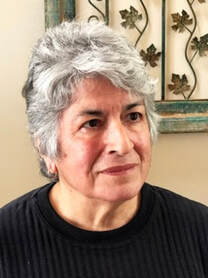 Gloria (Calvillo) Delgado, born and raised in San Francisco's Haight-Ashbury district, is the daughter of a Mexican father and a Hawaii-born Puerto Rican mother. She and her late husband David lived for many years in Albany, California, where they raised their family. One of her stories, “Savanna,” was included in the Berkeley Community Memoir Project's recently published collection, “A Wiggle and a Prayer.” She has had four stories printed in Somos en escrito, including “El Parbulito,” a first-place winner in Somos en escrito’s 2019 Extra Fiction Contest and included in El Porvenir, ¡Ya! - Citlalzazanilli Mexicatl - Chicano Science Fiction Anthology. Recently widowed, she now resides with family in a rural community outside Santa Fe, New Mexico, where she has resumed writing.
0 Comments
"We have been taught to see and interpret reality through the eyes of the dominant culture"10/26/2022 An excerpt from Latina/o Social Ethics |
|||||||||||||||||||||||||||
| chicano_confidential_the_future_of_higher_ed.pdf | |
| File Size: | 1502 kb |
| File Type: | |
Higher Education is an Enterprise, A new Kind of Architecture Can Rebuild it
To Serve Chicanos and Latinos by Design
By Armando Arias

As a state taxpayer, I say state institutions need to do a lot better. In this paper I suggest an overall IT strategy to this end while at the same time moving both IT and instructional systems beyond traditional ways of creating, transforming, managing, and administrating institutions of higher education (IHE) through the use of Enterprise Architecture (EA).
The COVID-19 virus pandemic of 2020 caused a sudden cognitive shift in American society in how it is that traditional state-supported university systems offer instruction by suddenly requiring online teaching and learning almost overnight. The shift to online instruction (namely the utilization of Zoom as a lecturing tool, plus a variety of LMS platforms like iLearn, Black Board, Angel, and Canvas, etc.) came suddenly and the majority of institutions of higher education (IHE) were simply not prepared, nor were administrator (see “The Chronicle Review: University Leaders Are Failing. The pandemic reveals ineptitude at the top” The Chronicle of Higher Education, May 19, 2020, https://www.chronicle.com/article/university-leaders-are-failing/248809).
In short, the manner in which the pandemic caused a rapid shift to online instruction is but one example of how institutions of higher education got on with their business of managing their universities/colleges. At the same time and due to the emergency situation there was a cognitive shift away from following policies and rules about which tasks could or could not be completed online (away from the university), especially since physical plants were closed to students, staff and faculty. Interesting to note is that the stigma that was often applied to non-traditional university (i.e., University of Phoenix, etc.) was swept under the proverbial rug, at least for now.
The pandemic also caused a good deal of rapid technological change not just for teaching and learning but especially for how to manage and administrate institutions of higher education. Most administrators were not skilled for rapid change, but nonetheless, we (taxpayers, stakeholders, etc.) need to hold administrators of state supported institutions of higher education accountable for misspending state funds, especially funds related to IT.
In addition, the pandemic has also caused a cognitive shift in how it is that people in America society (and in the world for that matter) think about the value of a college education and more--this is only part of the point of this paper, as I see this as an opportunity to suggest an even larger shift in how higher education “gets done” through the use of Enterprise Architecture (EA) through a combination of IT and Systems Engineering beyond what most college/university administrators can comprehend.
The point of this paper is to suggest how it is that EA is the most advanced tool of our time to manage rapid technological change today and in the future. Moreover, I will at the same time suggest how IT improvements can remain efficient and accountable to stakeholders (taxpayers, students and parents). Also suggested is a plan for radical transformation of what constitutes an IHE-system and how to better serve educationally underserved student populations.
Evidence of what I am pointing to and experiencing in American society today is captured in a series of reports published by The Chronicle Store, for instance:
- How Will the Pandemic Change Higher Education? Professors, administrators, and staff on what the coronavirus will leave in its wake
- The Right Mix of Academic Programs: Making decisions to add, cut, grow or shrink departments and degrees
- The Innovation Imperative: The buzz, the barriers, and what real change looks like
- The Looming Enrollment Crisis: How colleges are responding to shifting demographics and new student needs
University Enterprise Transformation/IT Alignment
In this paper I propose the development of a capability for enterprise architecture (EA) for large-scale state university systems such as Texas A&M University, Auraria Higher Education Center, CUNY, SUNY, and the University of California, to name just a few. Small private colleges/universities will also be taken into account when suggesting new designs, such as the advent of a Colegio Xicano Virtual. Enterprise architecture enables enterprises (herein: university-enterprises) to fully align administrative planning strategies with the technological infrastructures that support all of them. It facilitates a university-system’s ability to communicate with all components that make up the entire system (academic departments, curricula, faculty, staff, students, and community partners, and much more) all at once in real time. At the same time, it will strategically align with whom it interacts allowing boundary-less information flow, more effective decision support and the alignment of administrative, application, data and instructional and university-enterprise transformation, effective communication structures and practices, multimodal communications and the effective management of disruptive technologies. One definition of EA is that it is the organizing logic for all university-systems processes and IT infrastructure reflecting the integration and standardization and/or customized requirements of the university’s operation model, again, while remaining aligned with the university’s vision statement.
As a recent case in point, let’s examine a recent missed opportunity to apply EA. Last year (2019) UC San Diego turned out its first strategic plan in the history of the university; it provides a conceptual blueprint that defines the structure, operation and goals of the university. It is an excellent plan for this vibrant (relatively young) university, however, it is stagnant in the sense that it is not linked to anything. By using EA as a planning tool, the Strategic Plan could be a document connected to its university-enterprise in real time, constantly sensing, interpreting, reinterpreting, adding to and asking “What if?” scenarios of the ever changing landscape from things like budgetary and financial perspectives to perspectives on core values from the vision statement.
What most university administrators don’t realize is that their strategic plans are in fact changing as they are producing the document; you might say “the document is obsolete even before it is completed.” It’s important to note that the same goes for all other planning that is stagnant (not linked to real-time data). This would have been an opportune time for UC San Diego to apply EA to its strategic planning.
My point is that once realized, EA will change the nature of their planning. A major intent of EA is to determine how a university-system-enterprise can most effectively achieve its current and future objectives—in real-time between the relations found in this model.
| “Years ago, it was the idea of Viable Systems Models (VSM) developed by Stafford Beer that first acted as an aid to the practical process of diagnosing all problems in human organizations and helping to improve their functioning. Stafford believes that effective organizations should maximize the freedom of their participants, within the practical constraints of the requirement for those organizations to fulfill their purpose. He believes that the science of cybernetics can be used to design organizations which fulfill these objectives. The VSM is intended to act as an aid to the process of diagnosis of organizational problems, and the subsequent process of organizational re-design. The re-designing process should use technology, particularly information technology, to assist in providing organizations with a nervous system which supports their aims, without the burden of bureaucracy.” (From Stafford Beer’s Viable System Model: An Interpretation by Trevor Hilder © Cavendish Software Ltd. 1995, portions © Stafford Beer 1985.) |
In a recent announcement, CSU Humboldt predicted such low enrollments this fall that they were planning on eliminating departments (they are basically claiming bankruptcy). California State universities will be experiencing radical change due simply to the psyche of their students, but again, in the brave new world of new innovations that I am suggesting, the traditional educational models are going by the wayside at a rapid rate. EA models are necessary now. Similarly, without federal assistance a number of colleges/universities will either have to make radical changes or close their doors. Restructuring university-enterprise systems utilizing EA could be the answer as it could mean greater financial sustainability.
The UC has developed its own system-wide Enterprise Architecture BoK–Body of Knowledge, as a “repository of assets including guidelines, principles, reference architecture and standards, that have been reviewed and recommended for use. System-wide use of these assets increases the interoperability and reuse potential of technology investments made, thus improving overall efficiency.” In addition, EA involves administrative process reengineering and alignment with the technological infrastructure needed for such improvements. Note: This will prove critical as we prepare for the overall impact of pandemics and new conversion forms of university-systems.
The significance of university-enterprise architecture is demonstrated in moving from the idea of a university that adapts new technologies to a new paradigm for looking at transforming it to a thinking system, notably:
- Transforming the university into a thinking enterprise through the application of Enterprise Architecture as a tool for IT
- Viewing today’s university and its relationship to the regional community as a modern-day landscape or research setting for applied (real-time) research
- Engaging the community through transformation and through prioritizing resource allocations between various competing demands for resources (in-real time)
- Developing road maps for community engagement and service learning
- Developing road maps for leading modernization efforts in this country and beyond (especially in the borderlands)
- Developing road maps for acquiring skills and specialties in the workforce required to operate the university for the future
- Focusing on the university’s aspects for change
More than ever during the time of a global pandemic, we have the opportunity to rethink the idea of the university and add integrated diversity wherein minds that are connected (stakeholders) administrate behind the scenes through an integrated model for all to see at all times. It is through the application of Enterprise Architecture, IT, and Systems Engineering that act as the infrastructure designed to create real-time “What if?” scenarios that respond to rapid social change, such as pandemics.
From a teaching, learning and pedagogical perspective, I am suggesting a new “thinking university system” that will re-make universities as organizations and institutions into a new form of housing the production of knowledge to be taught to future students. It is important to note that I am not suggesting that this design be driven by Artificial Intelligence but will also have real-time (live) ongoing input from humans and algorithms based on human behavior. Important to note is that this approach will not employ a business model as is the case of current universities, hospitals, police departments, corporations, etc., but rather an approach that takes into account the real values and beliefs of its constituents and stakeholders.
Beyond providing new pathways for teaching and learning, this approach will assist in downsizing the physical plant of traditional universities, restricting operating budgets, setting priorities in curriculum and academic specialties and most of all finding new modalities for the actual imparting of knowledge in a professor-student relationship, etc. The new innovative thinking university-system of the future (the one being proposed) will at all times incorporate input of actual faculties in defining the role of the future of universities.
Keep in mind that much larger universities (as found in the California State University System) found it difficult to reconcile the new approaches to teaching that were practiced briefly and planned as alternative pedagogical models. In this way EA can assist universities in transforming entire university systems, it can be applied to complex organizations to create “What if?” scenarios that assist each and every stakeholder know how it is they are a part of the university (enterprise) and how they contribute to the overall vision of the university as demonstrated in the diagram below.
In that chapter, I point out how I was introduced to EA when César Chávez turned down a rather lucrative offer to help the Boeing Corporation solve ongoing conflicts between union and non-union workers as he was at the height of UFW Movement and could not assist. Instead, I gained insight into how to construct jet aircraft through the use of EA or applying a model that brought together over two million parts, and thirty thousand people to create one jet aircraft.
The problem you may not find comforting to know is that, no two aircraft ever come out the same because parts and human behavior change over the build-out of the aircraft; this is the central idea I borrowed from EA and applied to building out brand new universities as an enterprise unto themselves. Case in point: Boeing could suddenly not acquire copper rivets for wing assembly and had to go to Costa Rica for aluminum alloy rivets; the EA model could ascertain costs, weight, aerodynamic, training factors, labor costs, implications to contracts, and much more.
| Systems engineering is an interdisciplinary approach and means to enable the realization of successful systems. It focuses on defining customer needs and required functionality early in the development cycle, documenting requirements, then, proceeding with design synthesizing and system validation while considering the complete problem: Operations, Performance, Test, Manufacturing, Cost and Schedule, Training and Support and Disposal. Systems engineering integrates all the disciplines and specialty groups into a team effort forming a structured development process that proceeds from concept to production to operation. Systems engineering considers both the business and the technical needs of all customers with the goal of providing a quality product that meets the user needs. (Definition of the International Council on Systems Engineering (INCOSE).) |
http://pubs.opengroup.org/architecture/togaf9-doc/arch/chap06.html.
Advantages of EA Applications to Latinos
Enterprise architecture (EA) will:
- Take the Latino imagination to new heights and new possibilities
- Cause a new logic, cognitive and paradigm shift in thinking about social injustices in the Latino community that are social responsibility skills and more than encourage community builders
- Impact endowment injustices away from funders that are racist
- Impact endowment funding toward interesting projects involving the Latino community
- Help Latino stakeholders (from citizenry to students and beyond)
- Hold administrators of state supported institutions of higher education accountable for misspending state funds, especially if we define misuse as not graduating students of color in proportion to their standing in their respective regions
- Assist in the facilitation of Latinos holding social sciences degrees to become supervisors of engineers (Silicon Valley) by learning to speak engineering
- Proffer ideas and strategies for implementing Latino studies to stay relevant
- Align offerings with student and labor-market demand data and analysis on the trends and demographic shifts that are impacting enrollment numbers, including the Great Recession, declining birth rates, and a diversifying student population
- Assist colleges/universities to adapt and respond to emerging Latino student needs
- Effectively communicate projections (profitability) about Ethnic/Latino Studies in the future of higher education
- Provide innovation data to stir “What if?” scenarios Engage Latino/Chicano faculty in data-informed decision-making
- Study why financial and demographic pressures have given rise to the argument for innovation in Ethnic/Chicano Studies Programs
- Research the context for waves of higher education reform movements
- Address the barriers to change on campuses with real-time data
- Assist elements for meaningful innovation in the Latino community
- Transforming National City into a thinking city through the application of Enterprise Architecture as a tool for IT
- View the thinking university-enterprise as a modern-day landscape or research setting for applied (real time) research
- Engage the community through transformation through prioritizing resource allocations between various competing demands for resources (in real time)
- Develop road maps for community engagement and service learning
- Develop road maps for leading modernization efforts in this country and beyond (especially up in the borderlands)
- Develop road maps for acquiring skills and specialties in the workforce required to operate the university for the future
And last but not least, create a Colegio Virtual del Pueblo that at the same time acts as a model for restructuring higher education and infuses Enterprise Architecture, IT and Systems Engineering for planning, administrating and instruction in institutions of higher education.
EA is only a tech-tool to be sure, but it is also the most effective tool to date to cause an ongoing sparkling interchange of innovative ideas between very different types of people and start and/or transform institutions of higher education. Moreover, in all of the technological capabilities that exist today there is no better tool than EA to cause a confluence of knowledge.

| chicano_confidential_the_future_of_higher_ed.pdf | |
| File Size: | 1502 kb |
| File Type: | |
Small Startup Chicano Colleges: Models for Future Higher Education
By Armando Arias
 Artist Daniel DeSiga, 1975. © Smithsonian American Art Museum, Gift of Tomás Ybarra-Frausto.
Artist Daniel DeSiga, 1975. © Smithsonian American Art Museum, Gift of Tomás Ybarra-Frausto. César Chávez always seems to be nearby, guiding my thoughts. I have after all inculcated his values and beliefs into my own; I’m keenly aware of the impact his values have on the manner in which I construct my reality in everyday life. César’s values are exuded in everything I do, especially in special projects like starting brand new colleges and universities.
Due to the COVID-19 virus I have been in lockdown in Salem, Oregon, just 18 miles from Mount Angel, Oregon, home of the former Colegio César Chávez as my son recently located here from inner-Portland. Because I want to save lives, I stay at home, think and rethink. There are endless reasons the lockdown has been problematic, for me, because I want to visit the physical plant of the former site of the Colegio César Chávez. I want to walk the halls, I want to touch the walls, I want to walk through the rooms where the Andrew Parodi Family lived at the Colegio in their capacity as groundskeepers. I have an affinity to this reality as my family served as the groundskeepers at Frances Parker School in San Diego where my sister and I were the only students of color and we spoke only Spanish. I want to feel César’s spirit as I know he left spiritual DNA behind on his visits to the college.
I feel like conducting an in-service workshop about the STEM movement (science, technology, engineering and mathematics) to the Benedictine sisters who run St. Joseph’s Shelter in the building where the Colegio once operated. They are innovators in education in their own right as they have long believed that our institutions of education are failing us, so they may find my new book Theorizing César Chávez: New Ways of Knowing (2020) interesting. I am quite willing to conduct such a workshop as I feel the need to make amends with Benedictine sisters (Sister Julissa in particular) given my rocky relationship with them as a youngster.
I’m reminded of how they are concerned about taking care of Mother Earth and that just like César Chávez they want to see her healthy once again. Similarly, in his latest book First Lady Pope, Pulitzer Prize winning author, Victor Villaseñor, was once invited to meet with retired sisters and priests to discuss his book and like me, he was hesitant for reasons related to corporal punishment, but he went anyway and was pleasantly surprised because he learned to forgive. Victor’s message is that “modern civilization has lost its connection to nature and the understanding of our natural, loving Feminine Energy which nurtures all life.” This is precisely how César Chávez felt and the precipitating factor why I founded the Big Sur Environmental Institute in writing a vision statement while infusing his values.
I feel an existential pull to discover the realities behind Colegio César Chávez. It’s like the time I climbed the Temple of the Sun at Teotihuacán; when I made it to the top, I was rendered speechless knowing that I am related to this wonderful civilization. I thought, “What an honor.” I experienced a true sense of place, as I do amidst the concrete spikes in Chicano Park that are driven into the heart of our community. How else can I explain it?
I feel both César and Diosito tugging at my coat tails, I can hear César now as he is speaking to me from above as he often does and his voice and message is clear, “Go take a look, Sonny Boy, go and see what you can learn, go talk to the founders and/or the graduates of the Colegio. You know how to start universities/colleges, Sonny Boy, you’ve been doing it your entire career; there is an opportunity to serve out there, started by the pandemic, there is opportunity to help educationally underserved people of Aztlan, go and check it out and get back to me, andale!”
I am more than aware of the heroic efforts of founders of the Colegio César Chávez (1973 -1983) as they were an inspiration to me and my colleagues when we founded the InterAmerican College in National City (South San Diego), California, with a Chicano ideology and vision. I observed their efforts from afar, as I found the idea of a Chicano college quite fascinating, and it has remained as a grand value in my work.
Now just stop and think about that for a moment. Here is this small, relatively obscure institution in a rural German-American historic town outside of Salem, Oregon, and they were successful at garnering federal funds to build a campus and fund academic programs that led to full accreditation. Moreover, their statistics for graduating Chicanos/as were competitive with large state institutions; it didn’t make sense to be sure, but it did reveal the realities of this former Confederate State.
I can’t tell you how disappointing it was to hear that in the early 1980s the Colegio César Chávez was becoming more-and-more heavily scrutinized by the regional accreditation body to the point that even though they earned accreditation, they were simply not financially sustainable. Just prior to closing, the Chicano icon José Ángel Gutiérrez was being considered as President of the Colegio, but the timing was off.
Why is it that the Colegio came under such close scrutiny that they had to close their doors, compared to the scrutiny brought to bear, say, on the University of Oregon or Oregon State University or other any other state university for that matter? Let’s draw an analogy to the current state of play using the overnight adoption of online instruction in higher education. Within the impact of the current day pandemic universities/colleges across this nation (and world) transformed to online curricula literally overnight, yet their online curricula and faculty competencies were not evaluated nor assessed; they simply made the change.
The reality is that non-traditional institutions like the University of Phoenix, Walden University, National University, InterAmerican College and the Colegio César Chávez were and are held to a much higher standard when adopting online teaching and learning than state-supported institutions and it shouldn’t be that way; it’s simply not right! There remains in American society a stigma. In referring to small start-ups and/or Chicano-oriented schools such as the Colegio César Chávez, American society still attaches the stigma of being a “university without walls.”
When we earned full accreditation in the founding of the InterAmerican College (a Chicano college) much of the stigma of online learning had changed. The accreditation body was even inferring that we must incorporate online instruction, state our learning outcomes clearly, and demonstrate how we will reach them, so we hired the best leaders in online learning from the University of Phoenix.
I can say with confidence that the University of Phoenix has the best leaders for designing online instruction. I have spent my career researching online teaching and learning and I founded a highly successful international online consortia called BESTNET with senior engineers from ARPANET, a precursor to the Internet (I nearly created the Internet!), so I have a great deal of experience in assessing education delivery systems. Yet today, in a time of a global pandemic, thousands of public/private universities are forced to adopt online education (mostly 100%) and are not being required to meet the same standards as small private institutions and/or non-traditional institutions of higher education.
Moreover, just a few years ago a national campaign arose against “predatory colleges” that were seen as offering inferior online curricula and false promises like “Get in, get out, and get a job!” For instance, the 80 campuses of the Heald College system in California were defined as a “predatory college” and targeted due to a handful of complaints and subsequently forced to close its doors by the U.S. Department of Education.
What I directly observed in the region where I live was that for Latinos in Monterey County and the great Salinas Valley and 79 other regions where Heald had campuses, Latinos lost out. Heald was located in regions with a lot of Latinos and many attended to earn vocational and/or occupational health professions degrees.
Just look around and see who occupies many of the health professions positions, like medical/dental assistants, community clinic managers, hospital administrators, nurses and the like; the majority of people in these positions are Latino and trained at Heald College. To be sure, Heald’s tuition fees were higher than those at state colleges, but it’s only the case if you don’t figure in dorm life and food. Latino students at Heald were presented with student loan packages not any different than those presented to students at state colleges, so why then were they targeted as “predatory?” Couldn’t the same be said for any state university? Politically, once they started getting accredited to offer bachelor level degrees they became increasingly more and more under attack.
Even today, traditional institutions of higher education continue their stigmatizing attacks on non-traditional colleges/universities; Chicano-oriented efforts in higher education must still grapple with that stigma. For example, state colleges will not hire applicants for faculty positions from non-traditional universities, namely online PhD programs. There isn’t a rule, policy and/or law that keeps online degree holders out; it’s simply part of the high-brow culture found in the Academy, it’s the unspeakable truth, everybody knows but nobody will say, “We don’t hire those people.”
Having served on a number of hiring committees, when it comes to reviewing applicants (to include Latino applicants) from online graduate programs, I know for a fact that many highly qualified Latinos are being passed over purely out of stigma for non-traditional learning and perhaps for racist reasons as well. Yet, here we are in the middle of a pandemic that forces state institutions of higher education to teach and conduct administrative business in this modality and no one is assessing the pros and cons of online learning—that dialog has been temporarily put on hold. To be sure, we all understand the impacts of the pandemic and rapid social change, but again the unspeakable truth is that we (in the Academy) were forced to make the shift to online teaching and learning overnight, yet the stigmatizing attacks on small private start-ups continues as well as on online degree recipients.
The National Hispanic University (NHU) had similar beginnings as the InterAmerican College and the Colegio César Chávez. NHU became fully accredited, but regardless of a number of sizeable corporate donations from Silicon Valley funders, they could not establish long-term “hard funds” (secure ongoing perpetual funding) to underwrite the university as required by the accreditation body.
At the point where the accrediting agency, the Western Association of Colleges and Universities or WASC, threatened to take away their accreditation (in essence close the university), NHU sold their “accreditation medallion” to a Brazilian Corporation claiming to be “Hispanic” based in Baltimore, Maryland, in turn, stripping the Chicanismo right out of the university. This is one of the important lessons learned.
Conversely and to the point a number of online colleges/universities such as Walden University, Western Governors University, University of Phoenix, Grand Canyon University, United States University, and National University, all begun in non-traditional settings, are doing a better job at graduating Chicano/Latino students. Concurrently, the pandemic has caused and is causing a cognitive shift (perhaps even a paradigm shift) in how higher education is viewed and assessed by students and their parents in daily life. Students and parents alike are questioning the value and the content of higher education.
Moreover, the statistics for the number(s) of PhDs earned by people of color in aforementioned online graduate programs outweighs that of UCLA, Stanford and Harvard and all other universities for that matter. That being the case, why should Latinos continue believing and supporting traditional models, a la brava, as they are not serving us in the manner in which we support them? Financially speaking, if we were to take the case of California taxes and say take the state taxes Latinos contribute to the State’s budget and invest those funds in the non-traditional colleges/universities that are producing Latino degree holders, the meaning of a college education will radically change and this is where we could be headed.
I find it ironic that during a pandemic lockdown, Mt. Angel, Oregon, is calling out to me in this way, a small German-American town with a grand annual Ocktober Fest, we’ll have to add Corona, Modelo and Dos Equis beer to the festival. In 1973 Mt. Angel and the physical site of the Colegio César Chávez became the basis for an ABC television series about a town that becomes the nucleus for a post-apocalyptic community that returns to Medieval ways of technological applications.
I am so moved by new paths of discovery about the efforts of early pioneers that planted Chicanismo in Mt. Angel that I am taking all I know about technological applications (far beyond online teaching and learning), and in reflecting on the experiences and lessons learned from the founding of the Colegio César Chávez, and drafting a new pandemic driven paradigm for restructuring higher education.
The spirit of Chicanismo that once captured this obscure historic small rural setting demonstrates the power of an idea, the idea of a Chicano college, will not die; it simply provides a wretched experience to learn from. César’s favorite saying about education was a quote from Alberto Einstein, “Imagination is more important than knowledge!” and that is certainly at work here. What you need to know is that another Chicano college is on the horizon, one whose premise is to move Chicano students from dependence to interdependence to independence as community activists based on service and service-learning.
Once accreditation was realized and as part of the sale of the InterAmerican College, we agreed with WASC (the accreditation body) on two points. The first point is that we would keep the Chicano vision statement intact, and the second point was that we would not start another college in the region for at least seven years. Well, the time is up. The InterAmerican College has already submitted a new application to the Bureau of Higher Education.

| chicano_confidential_the_future_of_higher_ed.pdf | |
| File Size: | 1502 kb |
| File Type: | |
Pandemic Exposes Widening Gaps for Latinos in Higher Education
By Armando Arias
The artist continued to paint during her illness and says it helped her heal to do so.
This is the analogy to higher education, much like religion as Karl Marx observed, we as a global society have come to believe in higher education to such a degree that we forgot to design an antidote, a viable solution in case anything ever went wrong. As we in the Academy search for solutions to the problematics caused by the pandemic, we must come to the realization that in order to find a solution to developing an antidote, we must first search, define, and prioritize new values and beliefs to drive the research necessary to envision viable and sustainable solutions for how henceforth higher education will “get done.” We must turn all existing beliefs about higher education on their heads–in essence, the pandemic has done this for us.
Currently, the veil of objectivity has provided a paradigm for looking and believing in higher education such that we do not question the values and meaning of those values. We don’t question the bench work of professors and we don’t question decisions administrators with no experience in out-of-the-box thinking make, yet this is what we (people of color) need to watch closely as we take the hand coming in out of the fog and develop new ways of knowing higher education, new ways that provide solutions centered on serving ALL people in more equitable ways.
Face it, just look around. We are void of leadership with the type of skills necessary to address the issues the pandemic has caused in higher education that will lead to new meanings and values in higher education. There is no real paradigm in sight, nor are there leaders in higher education on the horizon with the insight necessary to lead us into the type of change necessary. We need a present-day Jorge Klor de Alba, former president of the University of Phoenix and The Apollo Group, maybe we can pull him out of retirement and pull him out of Brazil. Or, maybe we can locate an honorary Chicano like John Sperling, founder of the University of Phoenix, to provide us with a new paradigm for looking for solutions to the problematics that the pandemic has created for higher education.
It was not that long ago when John Sperling presented a vision about the future of higher education and it moved beyond the technology from the start. He had Latinos in mind. Sperling’s vision was to level the playing field and serve ALL people….little did he know that today his non-traditional university would end up serving educationally underrepresented people in a manner much better than traditional institutions of higher education (IHE).
Even after the U.S. Department of Education’s efforts to close down the university due to nothing more than political pressure from traditional large-scale IHEs, today the University of Phoenix should be moved to the front of the line for their paradigm for looking at and applying teaching and learning. Let’s just say that the pandemic is shedding new light on non-traditional ways. Briefly stated, the University of Phoenix is the best at what they do, namely online education, and they should be recognized for it. Plus, they serve people of color at both the undergraduate and graduate levels in respectable ways; this is due in part to the early leadership and vision of Klor de Alba.
Even as large-scale traditional systems of higher education (California State University and University of California) were suddenly forced into the arena with the real experts in online education (University of Phoenix), the traditionalists afford them no credence, no kudos, nada; this has now become the unspeakable truth. This is why our societal values must change, and they must change now in giving non-traditional IHEs the recognition they deserve.
We can start by no longer stigmatizing people of color who earn degrees at non-traditional colleges that are fully accredited and by-and-large produce more PhDs of color than all other IHEs combined.
The analogy to art, the image of sick lungs, for example, represents the stark reality that we can build systems, large-scale systems of institutions of higher education and they have the appearance of truth but the reality is that these systems are in many ways “sick” in a manner similar to institutional racism, by design, you might say. The point is that as societal values change, traditional IHEs will become obsolete at a faster pace. It should be noted that this can be exacerbated by further infusion of technology by administrators not fully aware of this possibility.
Beyond that is simply ignorance on the part of individuals who make decisions about technology and do not understand the impact their decision-making has on people of color, for example, on such concepts as access and equity. Moreover, traditional IHEs offer slow and/or never-changing degrees that poor students pay big bucks for, yet they are not taught how to leverage their degrees and navigate through the rest of their lives, unlike well-to-do White students. The following is a case in point.
I once attended graduation ceremonies at UCLA’s School of Business in honor of a friend’s son earning his bachelor’s degree. At the end of the ceremony, he stood with his best friend to take pictures. When we finished my friend (a starving Chicana artist) handed her son an envelope containing a crisp one hundred-dollar bill. She was so proud. In the same moment, her son’s best friend (a White male student) was handed an envelope by his father, a highly successful businessman who had earned a Masters of Business Administration (MBA) degree from UCLA–it contained a check for one million dollars. All at once, this caused a visceral response in me that was all too familiar: it reminded me more than ever of the GAP–the gap we are all too familiar with in American society.
For many Latinos, earning a degree from UCLA’s School of Business is like a miracle. More than likely, they have been first-generation college students, maybe a Dreamer, and with parents who had never set foot on a college campus and were poor, like my parents. We were so poor that we used to pile through cow dung at the “hides” where my grandfather worked, a slaughter-house meat packing plant in National City (San Diego) in search of beans. Yeah, frijoles! A cow, even with its system of stomachs can’t digest beans, so we would pick them out, boil them up and have fresh frijoles borrachos.
This is but one example of why Latinos within the realm of the pandemic are not freaking out. We know how to survive, but it’s this type of thinking that needs further transformation. We also need to learn how to thrive in a world made of structures designed by people who rule our society. Navigating life in a White man’s world takes skill, know-how, persistence, and fortitude, ganas, as we say. This represents a huge gap. Having a mentor, whether it be a parent, uncle or friend, places a student at a huge advantage over “mentors” who have never set foot on a college/university campus.
Take a closer look. These lungs are not an illusion; they are not fake; they came from the heart and soul of a sincere and trusting Chicana artist. This is a beautiful self-reflection of an immune system that overcame a terrible and horrific virus. The beauty of the lungs at the same time represents the great fear the artist endured.
When Latinos graduate from college, it is a beautiful experience for many, but making their way through the university experience they often do not have the type of support that is supportive of their journey. My father, for example, was supportive because he kept saying, “mi’jo, you have to go to college,” even though he did not go to college.
The online teaching experience causes new realities for how to support educationally underserved students and we need to focus on addressing a “pedagogy of the oppressed,” a la Pablo Freire for online teaching and learning. Again, here, too, is an institutionalized insensitivity gap, a tragic overarching gap, between the ongoing rhetoric, almost all of it repetitive in various language constructs over the last 100 years, if not more, and the reality that our society is experiencing a widening gap between rhetoric and reality in American life and politics.
Now, at a time when the Covid-19 virus has caused a major cognitive shift in the manner in which we construct our reality in everyday life, would be an especially good time to look around in higher education and identify a diverse group of genuine bridge builders, because the more extreme the divide, the harder it will be to construct viable bridges so needed in times of crisis. An integral factor in the widening divisions within our communities of color and American society at large lies in the world of higher education.
The pandemic has exposed one of the most profound gaps in higher education, that between the rhetoric and reality of our educational enterprise, the aspirations of our system versus its current results (outcomes). Even as we weave hopeful narratives about the role of higher education in the world that is unfolding, we must acknowledge and, more importantly, attempt to bridge the gulf between where we are, and where we would like to be. This is important, because I believe that for better or for worse higher education played a role in bringing us to this place, and higher education must play a role in moving us forward.
My question is, does all of education have what it takes in ability, character, and dedication to meet the demands of this next and crucial phase of the development of all of education, including our colleges and universities, and at the same time remain mindful of educationally under-served communities?
We have reached a point where talk will no longer do. Plans and various kinds of tinkering are all good in their place, but there comes a time when performance–genuine, solid, work-produced outcomes–is required and that time is now to focus on closing these gaps. As César Chávez would say, “Si se puede!”
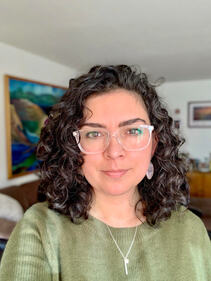
website: https://hijadelsolart.blogspot.com

CHICANO CONFIDENTIAL
To Ph.D. or not to Ph.D.?
“Should I Earn a Ph.D. in One of the Social and Behavioral Sciences?”
Some 40 plus years ago I earned a Ph.D. in sociology (with an emphasis in social psychology) at the University of California, San Diego. Now, I wonder why? Not for myself but for younger generations of Chicanos/as [herein: Chicanos] and others I’ve met and known across my years since earning the doctorate.
While preparing my notes for a keynote speech to be delivered at an annual alumni conference at a major university I was asked to reflect on the question, “What would I advise today’s students about whether or not to earn a doctorate?” The essay that follows is an offshoot of the keynote prepared for a general audience. Later, I was also asked to deliver a keynote at a Hispanic serving institution (HSI) and I decided to add a Latino twist to the question. I have to tell you, it goes without saying that I had many reflections about the Latino Ph.D. graduate experience while writing the keynote for the general audience. How could I not?
The Great Advice to Chicano Students Seeking a Ph.D. Degree
When a Chicano student asks me that question, I ask myself: “Does this student really have what it takes to earn a Ph.D. and go on to become a university professor or career researcher? Does this student have the stamina to survive the many hoops of fire that will form them into an intellectual?”
Over the years, my kneejerk response has grown more and more perplexing, both from practical and emotional perspectives. I want my response to be as honest as possible while at the same time taking into account personal life situations. I say to these students “Why do you ask?” and the most common response is most often “Because I have a passion for the subject matter.”
I know what they mean, as this has been my response to others for many years, still is. What I really mean to say (but never do) is “Why on earth in this day and age would you want to earn a Ph.D. in any other fields outside of STEM (science, technology, engineering and mathematics) where for the time being the jobs are plentiful and in high demand?”
One way to vet one’s ability for earning a Ph.D. is through their performance in a graduate school preparation program. It is an absolute must that young Chicanos majoring in the social and behavioral sciences thinking about attending graduate school, participate in a preparation and funding advisement program, one of the most comprehensive being the nationally recognized Ronald E. McNair, popularly known as the “McNair Scholars Program.” At the same time, students enroll into a unit-based senior level set of courses through the Undergraduate Research Opportunities Center (UROC) that addresses a variety of topics that will prepare them for graduate studies.
In so doing, the experience transforms students, provides insight into the life of a earning a Ph.D., and helps them develop a focused mindset. In short, once realized, the program places students at an advantage in preparing their applications to Ph.D. programs, Eligibility includes a strong academic record and that they be “either a first-generation and low-income college student or belong to a group traditionally underrepresented in higher education.”
A key part of the program is that students are matched with faculty mentors and as a result often publish in peer-reviewed journals prior to graduation. What Chicanos majoring in the social sciences need to know is that while this program has a reputation for primarily recruiting students from the hard sciences, social and behavioral science students are supported in the same fashion; the problem is that the program is not widely recognized in this way. In short, this is a wonderful opportunity for social science undergraduates.
Deep down inside my Self (in a social psychological sense), my truest response is directly related to my passion. I love ideas and I am keenly aware that the process of earning a Ph.D. causes a permanent cognitive shift in one’s paradigm for looking at everyday life; it literally transforms you and everything you interpret through an intellectual lens. Simply stated, due to the manner in which Chicanos experience the world, and as well as the way we socially construct our reality in everyday life, during the process of achieving the Ph.D., Chicanos develop a different consciousness, in this case an intellectual consciousness to be sure. During the transformation to becoming an intellectual your values and beliefs about most everything you know are transformed, held in abeyance in a new way, hence, you can’t help but also develop a Chicano consciousness. Franz Fanon recognized this duality and called it a “dual consciousness.”
My knowledge about the transformation of the Chicano consciousness as well as the process of earning a Ph.D. from the Chicano perspective comes from direct observations made while serving on dozens of hiring committees, not only in all the fields found in the social and behavioral sciences, but also in other fields (e.g., mathematics, life and natural sciences). And, in cases when there are not enough tenured faculty in a given academic area to assess faculty portfolios for hiring, retention, tenure and/or promotion I have been called to review faculty portfolios in my capacity as a full tenured professor.
I have also done the same as a university administrator. I would like to share the following general observations about the nature of university faculty hires in the social and behavioral sciences, and to some extent in the humanities. These statements are general, but at the same time represent what I continue to observe across academic fields, especially when it comes to providing advice to prospective Chicano Ph.D.s.
- Most positions require the Ph.D. in-hand prior to starting a new position. Don’t fake it until you make it or you will be labelled as such. And you must collaborate with a known editor to review your dissertation prior to submission; don’t take this point lightly as your dissertation will stay with you for your lifetime.
- There are an average of over 200 applications for each faculty position at major universities. Get used to steep odds; you must say to yourself that you will “never give up, never,” nunca darse por vencido, nunca, nunca digas nunca! Nunca te rindas!
- Place your machismo in a match box and be open to tips about how to improve your academic portfolio.
- You will be competing with applicants from other countries. You may be interested to know that there are a growing number of “Chicanos” applying from Japan, Germany, Mexico and Canada, no kidding, as they find the Chicano culture a fascinating topic for social inquiry.
- The applications that stand out are those with one-to-two year post-doc fellowships. Note: Post-docs provide opportunities to establish rapport with people that can help you find a faculty position.
- Publications are a must as the world you are entering is predicated on a “publish or perish” model. Publish your dissertation as a book. Publish both in and out of Latino Journals. Shy away from lesser journals until you have proved your abilities in known journals.
- A Ph.D. from a reputable institution
- Political acumen
- Mobility
These three social factors (general as they are) are realities that cannot be taken lightly, that is, if one wants to be gainfully employed, so let’s take a closer look at what they mean to Chicanos. A Ph.D. from a reputable institution is important as a recognized credential for a lot of reasons I am not prepared to discuss in this essay. Back in the day the majority of those Chicanos that were breaking the glass ceiling in academe came from just a handful of reputable universities like the University of Texas, Austin or from New Mexico Highlands University in Las Vegas (New Mexico) and the University of New Mexico, located in Albuquerque, New Mexico. Today, Chicanos are found earning doctorate degrees at any number of major universities.
Earning a Ph.D. from a reputable institution seems straight forward enough but the fact that more and more millennial Chicanos are earning degrees through one hundred percent online instruction such as the University of Phoenix and others causes search committees to rethink assumptions. For instance, statistically speaking, per capita, more Chicanos earn Ph.D.’s from Walden University (a fully accredited institution) than any other university in the U.S. I’ve also known and assisted students earning Ph.D.’s in online programs at the University of Phoenix and the Arizona State University and I would match what they learned against other reputable institutions. The problem is the lingering stigma against online education by traditionally minded universities of which there are many.
It wasn’t long ago that there was a great deal of stigma towards online degrees, and online Ph.D.’s were certainly not even considered possible. Today, when you earn a Ph.D. from say the Arizona State University’s online graduate degree program, it causes faculty search committees some pause about the quality of the program, plus, it is not self-evident that the individual in question was in an online Ph.D. program. Said differently, there is no distinguishable difference in the degree you receive and hang on the wall. Whereas in the recent past, many Chicanos felt they should earn doctorates from wherever possible, I return to the idea that at least in the foreseeable future, if you want to compete for a position at a major university and earn tenure, Chicanos should stick with traditional graduate programs at reputable universities.
The second social factor is the development of one’s political acumen. Just as the philosopher Aristotle encourages us to become political animals, he promotes the idea because politically aware people learn important bits of information on a daily basis that can increase one’s life chances. Simply stated, “Hang around the watering hole,” establish rapport with others, gain trust and create long-lasting relationships.
Historically, Chicanos don’t have this sort of political acumen outside of Chicano studies or ethnic studies programs, and so this has been an obstacle, but it’s importance should not be taken lightly. Academic departments are often in search of potential future heads/chairs of their departments, thus, presenting yourself as one who may fill this vision will work in your favor, Chicano or not. Few people want to take this position.
Mobility is a factor that doesn’t really strike new Ph.D.’s, until it does. One becomes so submersed in one’s studies, it’s difficult to get your head above water to see the practical realities. One of my advisors used to say, “You have to go where the gold is!” implying that if you want to increase your chances of landing a faculty position, you can do so by applying to positions in other states or countries. Bilingual and bicultural Ph.D.s are sought after and that is a good thing.
Think realistically about your job prospects. Many Ph.D. students hope to find a tenure-track position at a good college or research university after graduating (although others do pursue satisfying careers outside of academia). The reality is that academic positions are increasingly difficult to come by. Many Ph.D.s have to settle for temporary or non-tenure-track teaching positions, which can be just as demanding as full-time work but without the salary. Be prepared to follow jobs to colleges on the other side of the country or to adjust your career expectations.
With so many good Ph.D.s on the job market, many make altruistic moves by self-sacrificing their dreams of serving at a top 20 university and taking positions at lesser institutions. Many times Ph.D.s take teaching positions at community colleges and find that although their workload is greater than at a state college they are paid considerably more, and the reality is that it won’t be long before community colleges start requiring faculty to possess a Ph.D.
If you are like me, I made an altruistic career move (self-sacrificing), for the welfare of my family. I moved from a well-known top-20 Ph.D. granting university, to a lower-level (non-Ph.D. granting) university. I made this move in order to move my family to a highly desirable historic and culturally rich area with a university on the ocean and a high percentage of Latino students to include an agricultural area that stirred my sociological imagination for endless community-based projects that include service-learning opportunities.
If we view these social factors as measureable trends, we make other observations, like:
- In the next 5 to 6 years 38% of the California State University faculty and 32% of the faculty from the University of California, baby-boomers. will be retiring. This is also the trend across the nation. This means that many Chicano professors will be retiring.
- The number of faculty retiring under early retirement programs is growing.
- More Ph.D. programs are offering up to 5 years of full support because their endowments are experiencing high financial return rates.
- The normative time to earn the Ph.D. in the social and behavioral sciences and humanities is 6-7 years; 9 to 10 years is common.
- Post-doc programs are expanding, do research on a program that fits you.
- Many Ph.D. programs do not meet their “quota” in admitting Ph.D. candidates so take a second look at programs that may have initially turned you down and reconnect with them, go visit them face to face and make your case for admittance. Just do it!
- If we look in the pipeline there are far fewer Latino males seeking Ph.D. s then females, Stanford psychologist Phil Zimbardo (The Prison Study) refers to this phenomenon as the “demise of guys” stating “Guys simply don’t see the pay-off.” This is certainly the case for male Chicanos.
- A growing number of Chicano professors are moving into administration and out of the professoriate in turn making room for new faculty lines. Think before you go for the big bucks as you were not trained to become an administrator.
- Keep an eye-out for the trends in higher education, Chicanos are not as in vogue as they were just a decade ago.
Trends or not, the Ph.D. is not for everyone due to a myriad of factors, some of which I have enumerated in this essay. Traditionally, the Ph.D. degree was viewed and valued as high level training in performing research in one’s chosen scholarly field. Said differently, going into research as an aspiration for some may not be realistic, but there are programs that offer alternative kinds of Ph.D. opportunities. Of course if a student sees his or herself wishing to be a college or university professor, and has the skill set and capabilities to actually become one, than a Ph.D. is typically a pre-requisite at least for the foreseeable future. Bottom line – it depends.
And, before addressing the question “Should I Earn a Ph.D.?” any further, let me offer a philosophical and highly important perspective, depending on the age and interests of the student. I suggest that students take off a year after graduation and perform some self-analysis while being employed and reflect on Socratic like questions: Who am I, really? Why am I here? How then should I live?
A Ph.D. is perhaps the most important degree in the world. Ph.D. level research skills will help to improve your abilities to understand and solve problems, increase your confidence, make yourself a better communicator and gain skills that may lead to a better job, even in many fields apart from academics; plus, you learn to teach yourself (most anything) for the rest of your life.
Working on a Ph.D. is an indication that you are taking ownership of your professional life and at the same time taking responsibility for the development of your academic career and life. It is more important for you than for the institution you work for or go to obtain the degree. The Ph.D. institution may not be the purpose of even the passion of your life; it is merely a vehicle in which we travel on one part of our life’s journey.
What is most important, as Abraham Maslow has pointed out, is self-fulfillment. That is the most worthy goal of all. Money may be tight while you're studying, but this is one area where a Ph.D. really is worth the investment, especially in fields such as law, pharmaceutical sciences, biomedical sciences, and finance. Getting your doctorate will make you more likely to earn a higher salary over someone with only a master's degree.
- You’ll have unique career options open to you that you won’t get with just a Master’s and you can lead a non-profit that serves your community.
- You’ll have the self-confidence that comes with knowing you stuck with your degree, instead of quitting.
- Your writing skills will improve tremendously.
- You’ll have better interpersonal skills.
- Intellectual curiosity.
- It is a myth that a Ph.D. degree only prepares you to succeed in academia. Since a doctoral program helps you develop a field specialty, it is not hard to imagine people who use their Ph.D. training to sharpen their skills in order to work in industry.
Why I shouldn't enter a Ph.D. program?
- No true passion
- “I just want to be called ‘doctor’”
- No rapport with an academic advisor
- Too much of a financial burden
- Too much time and energy
- Unforeseen Consequences
- “I thought I had a passion for this stuff, but I don’t.”
- “I didn’t know it would be this much work.”
- “I can’t find a supportive advisor.”
- “My spouse can’t take it any longer.”
- There is no real “transfer” between universities, like moving from one university to another and holding the same academic standing or credit earned.
- What do I do if I never earn tenure?
What is your motive for getting a Ph.D.?
Examine your true motivation for wanting to earn a Ph.D., and how the degree makes sense or not within your larger plan. Despite the obstacles, people stay in doctorate programs because they enjoy learning for learning's sake. They relish the opportunity to tackle intellectual problems and explore new areas of knowledge. For some there is the added appeal of taking time out from the traditional job market as you pursue what you love. But if it's your ambition to become a professor, you should be aware that the Ph.D. track is no guarantee of a life in academia.
Can you live frugally?
Getting a doctorate is intellectually rewarding. Unfortunately, it doesn't tend to be financially rewarding, at least not in the short term. Most Ph.D. students live on their earnings from teaching and research assistantships or other low-paying employment. So, your starving student days may not be behind you.
Are you ready for the workload?
Graduate courses are far more rigorous than those you took as an undergrad, and first-year Ph.D. students usually take around three classes. Many graduate students also serve as teaching assistants (TAs) and must learn how to juggle their needs along with their students’. Chicano students who serve as TAs soon find out that students of color will seek them out as mentors, role-models thus adding to their workload – this phenomenon will not change through the course of one’s career. And, of course, in the final years of the Ph.D. program, you'll mainly focus on writing the dissertation and preparing for oral exams.
How do you handle pressure?
Each year, some Ph.D. candidates do not meet the requirements of their graduate programs and are asked to leave. Others choose to leave because they are burnt-out, or their interests have changed. Some students who don't complete the Ph.D. leave with a master's degree; others leave with no degree at all. You should be prepared for these scenarios by making a back-up plan.
Successful Ph.D. students thrive in a highly intellectual environment, are willing to work very hard with only a possible payoff, love their field of study, and don't mind forgoing impressive paychecks. If this sounds like you, forge ahead!
The Art and Science and Benefits of Grant Writing
If you really want to set yourself apart and if you want to generate data to write and publish about, write a grant. There is nothing like writing a grant and receiving funding for your ideas. One of the most intriguing thing to me is that most people will never write a grant, nor will they ever have the experience of being critically examined for ideas they propose. Go for it. Just like everything else, it takes a little practice. Start by reading the first 30 pages of Writing Grants for Dummies; it is a good and practical guide. It’s like my mama always says, “What are you asking for now, Sonny Boy? You should always be asking for something!”
I always had innovative projects to propose to be sure, so I often sought out and established rapport with foundation representatives on designing fundable projects. I did the same with foundation representatives in private corporations often linking them to others performing public service. I caused wonderful interdisciplinary marriages and always brought attention to those involved. Así, pues, nunca debemos abandonar la esperanza aunque parece imposible de mantenerla.
Diversify Your Skill Set and Bench Work: Remain Interesting to Others as Well as to Your Self
I have a colleague who spent 38 years as an English professor at a major university; 25 years ago, he earned a Master’s degree in marriage and family counseling (MFC) and simultaneously built a psychotherapy practice. Interestingly to note is that he has a Ph.D. in English and a MFC degree in counseling and the title on his counseling practice reads, “Dr.” He retired as an English professor but has since kept his counseling practice. Interesting to note is that his practice is located directly across the street from a major university and ninety percent of his clients are young tenure-track professors with tremendous amounts of anxiety – now that’s interesting!
Final Points
- Getting a Ph.D. isn’t enough to get you an industry job.
- A Ph.D. means very little unless the individual has the right mindset.
- Collaborate with authors of your letters of recommendation so that they describe you as the best thing since sliced bread and not sell you out.
- View your CV as a presentation of Self (in a social psychological sense).
- You may end up with an academic advisor who treats you poorly; try to turn that around. If not, deal with it, earn your Ph.D., and move on.
- Establish rapport with your advisor as well as other scholars.
- Cast a wide net – work at expanding your social network, la red.
- Devise methods (like publishing or co-authoring articles) to deal with the publish or perish fear mongering.
- No matter how out of line they may appear, propose ideas, write grants and collaborate with others on your ideas.
- Work hard, work very hard. Get up early every day to get to your bench work.
- Remain aware that the truth about discrimination is that it is alive in American society. Latinos are discriminated against for a variety of reasons ranging from their accent, skin color (phenotypic discrimination) and/or political views (especially activist views). In this day and age, it is not recommended that one refer to themselves as “Chicano/a” as it is viewed as politically incorrect, even old school.
- Diversify your skill sets (earn a certificate in an outside field). For example, if you earn a Ph.D. in sociology, go out and earn a certificate in Enterprise Architecture or Systems Engineering as Silicon Valley corporations are in need of social scientists who can “speak” engineering.
- Earn a Ph.D. from a reputable institution. Consider studying back East or attending an Ivy League university.
- Be a political animal.
- Develop coping skills for navigating with a Ph.D. in a peculiar and curious world. The only way to cope with and/or transition out of this system is head-on, question it intelligently, take risks, and adopt a strong mental state
- Be mobile. As a Chicano, consider moving out of Aztlan (out of your comfort zone) as you can always return, but know, when you do, people will see you differently, and that’s a good thing.
- Go where the gold is! Id donde está el oro!
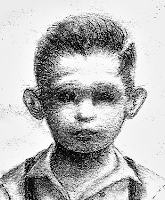
Intersections:
Science, Art, Moment-to-Moment Life, and Representation
You must distinguish and then combine...
– Goethe
When we conform to binary choices, we may as well RSVP, “yes,” to an invitation not to think. Black or White, Right or Left, Science or Religion, Pink or Blue—these “boxes” may provide a haven for those who enjoy the comfort of lines not to be crossed, but they offer no visionary or revisionary way to see the world, and how to navigate through that world with an open mind and heart. A binary world is one filled with assumptions that in most cases turn out to be wrong.
Societal constraints impact our career and/or vocational directions too. How much independent thinking do we afford our children? How much do we tell them that learning is not limited to a classroom; it can and should happen everywhere. I was fortunate to have been mentored by amazing thinkers who taught me to always seize on an opportunity to learn. I heeded their advice, and together with luck and hard work, I was able to shape a career that did not keep me confined on one path. I have forged a career in immunology as an academic scientist, and have completed many written works as a fiction and non-fiction author. Whether in science or art, all of my work is informed and guided by social and political landscapes that intersect and enrich each other.
In the courses I teach, such as cell and molecular biology, I found it impossible to lecture about mutations, or changes in our genetic blueprint, without ensuring students understood that human diversity, in large measure, is a consequence of these changes. Differences in skin pigmentation, hair and eye color, and so much more, are due to alterations in our DNA. Variations due to changes in our genetic blueprint also impact sex development, as seen in intersex people. The frequency of intersex in the population is approximately 1-2%. Intersex people are born with internal reproductive anatomy and/or external sexual anatomy that differ from typical males and females. We have been taught to think that those in possession of a vagina, clitoris, ovaries, and XX chromosomes = female, and those in possession of a penis, testes, and XY chromosomes = male. However, this is not the case for everyone.
The strength of binary thinking tries to force us into one of two “boxes,” and has limited our ability to accept and welcome intersex people. Designating intersex people as unequal and inferior to males or females has led to the unjust treatment of those with intersex variances. If a child is born intersex and is in possession of external genitalia that is androgynous, a mix of male and female, the child may be subjected to surgeries aimed at “correcting” the “imperfections.” In most cases, these types of surgeries are medically unnecessary, and are solely executed to force people to fit the sex binary.
Surgeries done purely to adhere to social norms need to be called out for what they are, nothing short of Intersex Genital Mutilation. As a biologist it has been important for me to do what I can, through writing and lecture, to utilize science in the pursuit of social justice. In collaboration with the author, intersex activist, and consultant, Hida Viloria, we have written a book (anticipated publication date, early 2020) entitled, Reimagining Sex and Gender: Understanding Biological Diversity. The book not only provides the framework to understand how intersex variances arise, it also addresses how sex and gender intersect and impact policy and law, such as marriage rights.
A few years back it became clear to me that the acceptance of intersex people as a legitimate third sex could also be helpful in securing marriage equality rights. For example, viewing marriage as a right that should only be afforded between one man and one woman, does not take into consideration people who do not fit the binary. As a counterpoint to this view, I was driven to use science to write the first biology-based amicus brief in support of marriage equality to the Supreme Court of the United States. I used the natural existence of intersex variances to formulate my argument.
As with my science based writing, my work in fiction has been used to create characters and plots to call out injustice. In my crime dramas, Pig Behind The Bear and The Water of Life Remains in the Dead, I had to create a new heroine because heroes like Superman have not been interested in coming to East LA where the people impacted in my stories live. Therefore, a protagonist, a feisty Chicana by the name of Alejandra Marisol, had to be fashioned to fight injustice and protect the most vulnerable among us—immigrants and their children.
Alejandra is not faster than a speeding bullet, or more powerful than a locomotive—she can’t even leap tall buildings, but she is determined to come out on top even when confronted with bone chilling danger. She is the best in each of us. She is the dreamer, the fighter, the one where the words, si se puede or yes we can, are not enough. Instead she lives by the words, si lo haremos, or yes we will.
For me it has never been a question of how to navigate work in science and art, but rather, how could I not.
| Maria Nieto, who earned her doctorate in Immunology from UC Berkeley in 1989, is a Professor in the Department of Biological Sciences at California State University, East Bay in Hayward, California, where she has been involved in underrepresented minority recruitment, teaching, writing, and research for over 30 years. Her award-winning crime novels, which incorporate her scientific insights, Pig Behind the Bear and The Water of Life Remains in the Dead, have been featured in Somos en escrito Magazine. |
Lyndon Baines Johnson, then president, had ordered federal agencies to beat the sage bushes throughout the Southwest to recruit Chicanos and Chicanas to join the ranks of federal workers. I got a job at the U.S. Commission on Civil Rights as a press officer. Tocayo got a job running the HEW Office of Spanish Speaking American Affairs. Happily, our paths crossed many times during his several stints in the capital. He will always be a dear friend.
His obituary, which appeared in the Associate Press News, follows:
Armando M. Rodriguez, a Mexican immigrant and World War II veteran who served in the administrations of four U.S. presidents while pressing for civil rights and education reforms, has died.
Christy Rodriguez, his daughter, said Wednesday her father died Sunday at their San Diego home from complications of a stroke. He was 97. He had been ailing from a variety of illnesses in recent years, she said.
Born in Gomez Palacio, Mexico, Rodriguez came to San Diego with his family as a 6-year-old in 1927. But he was forced to return to Mexico after his father was deported during the mass deportations of the 1930s during the Great Depression. A young Rodriguez lived in Mexico for a year before the family could return.
“He barely spoke Spanish,” Christy Rodriguez said.
After the Japanese bombed Pearl Harbor in 1941, some of his Mexican immigrant friends fled to Mexico to avoid military service. Rodriguez, however, joined the U.S. Army. “It was not a difficult choice,” Rodriguez told the Voces Oral History Project at the University of Texas in August 2000.
Following the war, Rodriguez graduated from San Diego State University and worked as a teacher and joined the Mexican American civil rights movement after witnessing his fellow Latino veterans being denied house and facing discrimination.
He led Southern California’s Viva Kennedy campaign, the effort to increase Latino voter support for John F. Kennedy’s presidential run in 1960. Rodriguez founded a chapter of the veterans’ American GI Forum civil rights group in San Diego as a junior high school teacher.
President Lyndon Johnson appointed him chief of the U.S. Department of Health, Education and Welfare’s Office of Spanish Speaking American Affairs. President Richard Nixon later named him assistant commissioner of education in the Office of Regional Office Coordination.
Rodriguez returned to California to become the first Latino president of East L.A. College. In 1978, President Jimmy Carter appointed him to serve on the Equal Employment Opportunity Commission. Rodriguez continued to serve on the commission under President Ronald Reagan until stepping down in 1983.
Later in life, Rodriguez continued to advocate for educational opportunities for Latinos. But Rodriguez told the Voces Oral History Project that he had always wished he had been able to do more.
“The legacy you leave is what you were worth while you were here,” Rodriguez said.
Russell Contreras is a member of The Associated Press’ race and ethnicity team.
Sex and the Second Graders
By Gloria Delgado
Helen’s faint, wistful query had come out of nowhere, stopping us cold, leaving us holding partially gnawed apples or cookies or unfinished sandwiches suddenly gone dry and hard to swallow.
Just moments ago our small group of seven second grade friends had been companionably eating lunch at our assigned place, one of the well-worn brown-painted wood and cement benches lining the left side, the girls’ side, of St. Agnes School’s upper playground. It was, we thought, the best bench of them all.
The central decoration, the focus and pride of our schoolyard, was an imposing outdoor shrine facing the school’s main entrance, a life-size gray cement cave or grotto sheltering a statue of Our Lady of Lourdes. Tall arching trees, green shrubs and rosebushes growing along the fence line provided the shrine, and our adjacent bench, a welcome feeling of privacy and peace.
Leave it to timid, wispy-haired little Helen, youngest and smallest of our circle, to disrupt that peace. Didn’t she know that “sex” was one of those intriguing socially unacceptable words we weren’t supposed to know, and never ever supposed to say out loud, in public? Obviously not. She was so dumb!
With leftover sandwiches and snacks returned to colorful metal lunch pails, our immediate mutual instinct was to check if the coast was clear. Where was today’s playground monitor, and who was she? No way did we want our discussion to be overheard, especially by bossy, crab-faced Mrs. Baxter, the tall lady with the tight blonde perm who sometimes filled in as supervisor. Our heads swiveled back and forth as we peered through the blur of almost two hundred uniformed students: white-shirted boys in navy cord pants, girls in white middy sailor blouses worn over pleated navy skirts.
“There she is,” red-haired Millie whispered, tossing two long auburn braids behind her shoulders, “…over by the boys.” A collective sigh of relief, the coast was clear, we were safe. Today’s supervisor was popular and always amiable Sister Mary Francis, busy settling a problem on the opposite side, the boys’ side, of the playground. Sister’s billowy black floor-length habit and black veil over a starched white coif made her a formidable, highly visible presence, even against the sea of navy blue and white.
Helen’s unanswered question still hovered overhead, filling the atmosphere with a heavy uncomfortable silence. I couldn’t stand it. Somebody had to go first; it might as well be me. I swallowed the rest of my bite of apple, cleared my throat, gathered up a bit of courage, forced out an answer. “Sex means whether you’re a boy or a girl. You know, those boxes our parents mark with a pencil on school or doctor forms.” The words had barely slipped out when I knew it was too simple, too easy an explanation.
Barbara’s brown Shirley Temple curls went flying as she shook her head in disagreement. “No, sex is holding hands with a boy.” Millie, then the others chimed in. “Yuck! Who wants to do that?” “No, it’s when a boy kisses you and you kiss him back.” Suzie objected. “Well, my grandpa used to be a boy, sometimes he kisses me, and I kiss him back!” “That’s different!” “Why?” “Boys stink!” “It’s something that happens when boys and girls cuddle up too close together.” “Double yuck!” “It’s about grown-ups.” “No, sex is about teenagers, not old people, and there’s got to be kissing!” “You’re all wrong! Sex has to do with babies!”
Back and forth we went, each contribution adding to the muddle. Then Mary (the smart one) issued her opinion. “No, there’s more to it than that, lots more,” she declared in a slightly superior tone. “Sex is about grown-ups, not teenagers. A man and a lady like each other, they get married, they have children.”
A great silence followed Mary’s declaration. Well, that’s that, I thought, end of discussion. Mary, of all people, should know; she was part of a big family with lots of brothers and sisters. Besides, Mary’s father was a lawyer, and everyone knew that lawyers, and by association, their children, were extra smart.
But no, that wasn’t that, after all. After a few more silent moments somebody else, I think it was Joan, spoke up. Yes, now I remember. Joan, not to be outdone (she was oldest, after all), brought up another subject we weren’t supposed to discuss.
“Well, sometimes ladies have children without being married. What about them?” I don’t remember what Mary or anyone else answered, but Joan was on a roll, and not about to be silenced. Tucking some wayward strands of wavy dark hair behind her ears, she continued. “And besides, what about men who like men? We’ve all seen them kiss and hug. What about them? Men don’t get married to each other, and men sure can’t have children!”
A collective gasp, then another long quiet pause as we thought this over. I just knew we were all remembering the same thing. Last Friday, over blaring classroom speakers, The Office had emphatically announced a new rule: Effective immediately, nearby Buena Vista Park would be off-limits to all St. Agnes students. Parents and teachers alike were in complete agreement, The Office proclaimed.
“But why?” I asked my father later that same night. “It doesn’t make sense, it’s not fair, parks are supposed to be for everybody!” “That’s just the way it is, that park is for men only and you’re never to go there,” Papi answered, putting an uncharacteristic end to any more questions from me regarding that particular topic.
Our group drew in closer, heads touching, hands gesturing, to discuss this new topic. We were all accustomed to Middle Eastern men walking hand-in-hand, a familiar sight in mid-1940’s multicultural San Francisco. No one cared, hardly anyone noticed, except maybe tourists. But other men who did this were different, somehow; we just knew. Finally, by mutual agreement, we quietly decided that yes, sex had something to do with men, too. Still, exactly what it was none of us had any idea.
We weren’t quiet for long. Frowning, a puzzled Barbara posed a new question. “Well, if men can like men, do ladies ever like ladies?” Another explosion of opinions followed. “That’s impossible!” “Ladies don’t kiss each other!” “Why not?” Suzie again: “My aunties kiss and hug me, and each other, all the time!” “That’s different!” “Why?” “That’s crazy!” “Yuck!” “No way!” “There’s no such thing!”
By now, all caution flung aside, we were practically shouting at each other. “Well, why not?” I countered (the voice of reason). “It makes sense. It’s only fair. If men can like each other, then why can’t ladies? What’s the difference?”
Little Helen spoke up again, this time in an impressive, never-before-heard-aloud voice. “Let’s ask Sister! She’ll know! And she won’t lie to us like our parents sometimes do, because she’s a nun, and nuns can’t lie. They’d go straight to hell!”
“Good idea!” “You ask her!” “No, you do it!” “You thought of it first!” Somehow (because I was tallest?) they picked me to be spokesperson. There’s strength in numbers, they say. Or maybe it’s strength in courage. Whatever. So, hoping one or both sayings were true, I stretched out my hands to my six friends.
“There she is,” shouted Millie over the rumble of other voices celebrating their release from lunchtime constraints. “…over by the boys, next to the main stairs!”
Clinging to each other, seven sets of fingers tightly interlaced, we set out in search of Sister Mary Francis, carefully making our way through a sudden surge of students. The hand bell signaling the end of lunch and beginning of free play had rung. We hadn’t even noticed.
Sister gave us her customary warm smile as we approached. “Yes, girls? May I help you with something?”
I spoke up, body trembling, knees knocking, appallingly aware of my duty as spokesperson. “Yes, Sister, we need to ask a question. You know how… sometimes… men like other men?” I paused to gather up another bit of courage before continuing. “So… do ladies ever like… other ladies?”
Sister’s smiling face still beamed; then, as she realized what we were asking, she gasped, exhaled, stopped breathing. Paralyzed, horrified, we watched Sister’s complexion change from normal to a pale, chalky white, almost as white as her coif, then to an alarming crimson. Oh no! Was she mad at us? Was she going to yell at us? Were we in big trouble? Would we be sent to The Office? Would they call our parents? And what if Sister Mary Francis fainted, or even died? It would be our fault! Obviously, we had accidently stumbled across yet another one of those socially unacceptable questions. I felt so dumb!
At last… Sister gasped, breathing in gulps of fresh air as her complexion slowly regained its natural color. More long seconds passed before Sister forced out an answer to our question. In a dreadful high dry squeak, like the sound that comes out when you try to talk after inhaling the air from a helium-filled balloon, Sister blurted out: “Yes, it happens, but it’s very, very rare!”
“Thank you, Sister,” we chorused before scrambling away, zig-zagging through boisterous clumps of rampaging boys, back to the girls’ side, back to the security and serenity of our own designated bench by the grotto.
Could we believe her or not? We weren’t sure. We still liked and respected Sister, and she had, after all, answered our question. But nun or not, Sister Mary Francis’ reaction wasn’t very convincing or reassuring. Learning the truth about sex was obviously going to be up to us, without any adult help. Maybe next year, when we were older and smarter, when we finally reached third grade, maybe then we’d understand more about it.
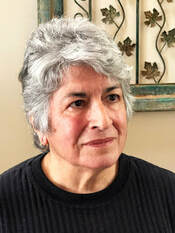
Archives
June 2024
April 2024
February 2024
November 2023
October 2023
January 2023
December 2022
October 2022
August 2022
July 2022
June 2022
May 2022
March 2022
February 2022
December 2021
November 2021
October 2021
June 2021
April 2021
February 2021
January 2021
December 2020
November 2020
October 2020
September 2020
August 2020
July 2020
May 2020
April 2020
March 2020
February 2020
January 2020
December 2019
October 2019
August 2019
July 2019
May 2019
April 2019
March 2019
February 2019
January 2019
December 2018
October 2018
September 2018
August 2018
July 2018
June 2018
May 2018
April 2018
March 2018
February 2018
January 2018
December 2017
March 2017
December 2016
September 2016
September 2015
October 2013
February 2010
Categories
All
2018 WorldCon
American Indians
Anthology
Archive
A Writer's Life
Barrio
Beauty
Bilingüe
Bi Nacionalidad
Bi-nacionalidad
Border
Boricua
California
Calo
Cesar Chavez
Chicanismo
Chicano
Chicano Art
Chicano/a/x/e
Chicano Confidential
Chicano Literature
Chicano Movement
Chile
Christmas
Civil RIghts
Collective Memory
Colonialism
Column
Commentary
Creative Writing
Cuba
Cuban American
Cuento
Cultura
Culture
Current Events
Dominican American
Ecology
Editorial
Education
English
Español
Essay
Eulogy
Excerpt
Extrafiction
Extra Fiction
Family
Gangs
Gender
Global Warming
Guest Viewpoint
History
Holiday
Human Rights
Humor
Idenity
Identity
Immigration
Indigenous
Interview
La Frontera
Language
La Pluma Y El Corazón
Latin America
Latino Literature
Latino Sci-Fi
La Virgen De Guadalupe
Literary Press
Literatura
Low Rider
Maduros
Malinche
Memoir
Memoria
Mental Health
Mestizaje
Mexican American
Mexican Americans
Mexico
Migration
Movie
Murals
Music
Mythology
New Mexico
New Writer
Novel
Obituary
Our Other Voices
Peru/Peruvian Diaspora
Philosophy
Poesia
Poesia Politica
Poetry
Politics
Puerto Rican Diaspora
Puerto Rico
Race
Reprint
Review
Rodolfo "Corky" Gonzales
Romance
Science
Sci Fi
Sci-Fi
Short Stories
Short Story
Social Justice
Social Psychology
Sonny Boy Arias
South America
South Texas
Spain
Spanish And English
Special Feature
Speculative Fiction
Tertullian’s Corner
Texas
To Tell The Whole Truth
Trauma
Treaty Of Guadalupe Hidalgo
Walt Whitman
War
Welcome To My Worlds
William Carlos Williams
Women
Writing
Donate and Make Literature Happen
is published by the Somos En Escrito Literary Foundation,
a 501 (c) (3) non-profit, tax-exempt corporation. EIN 81-3162209


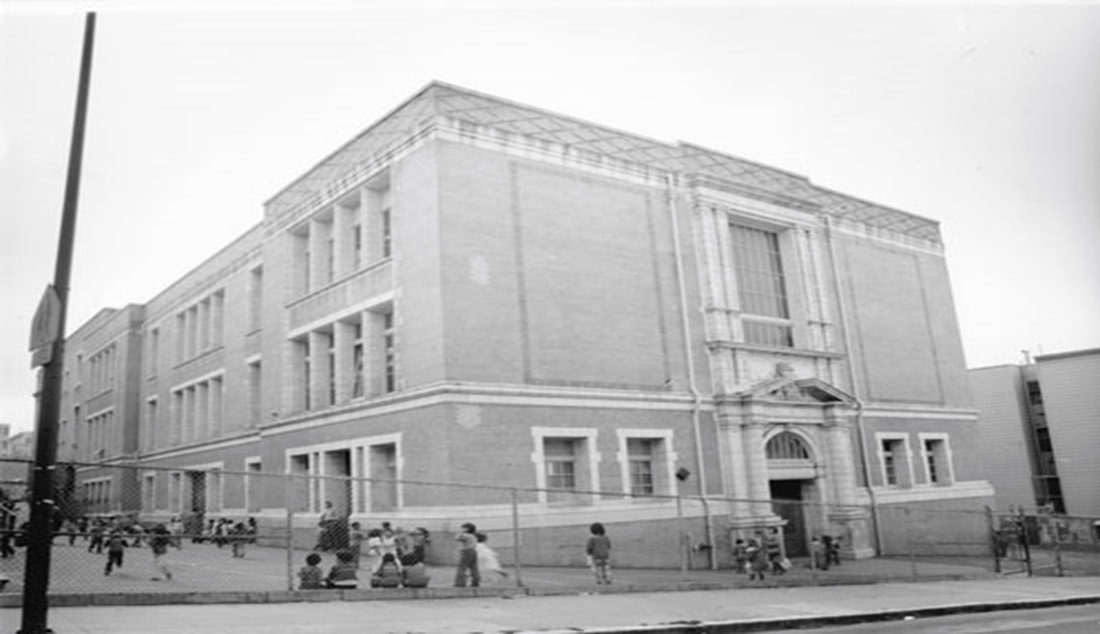
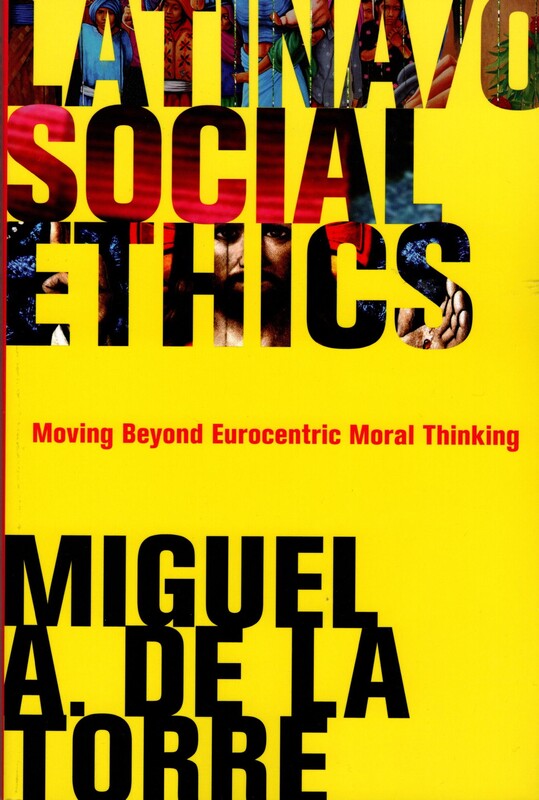


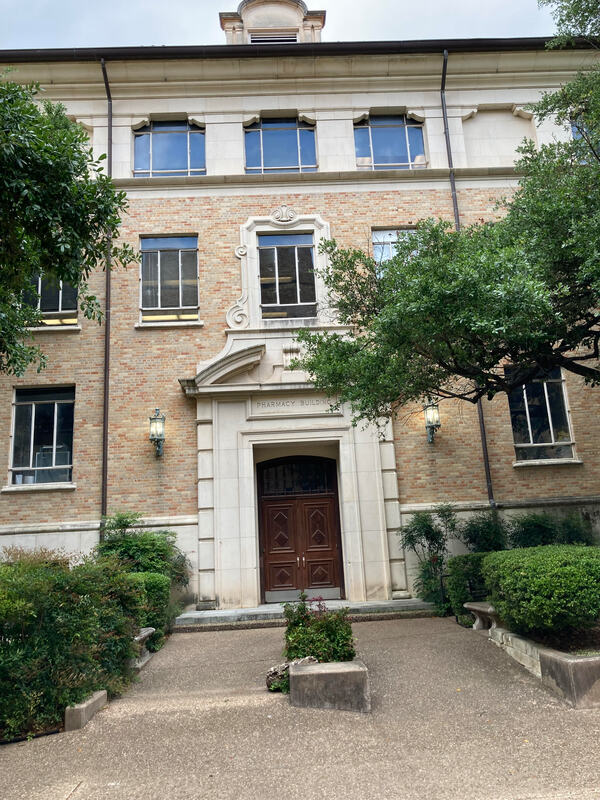
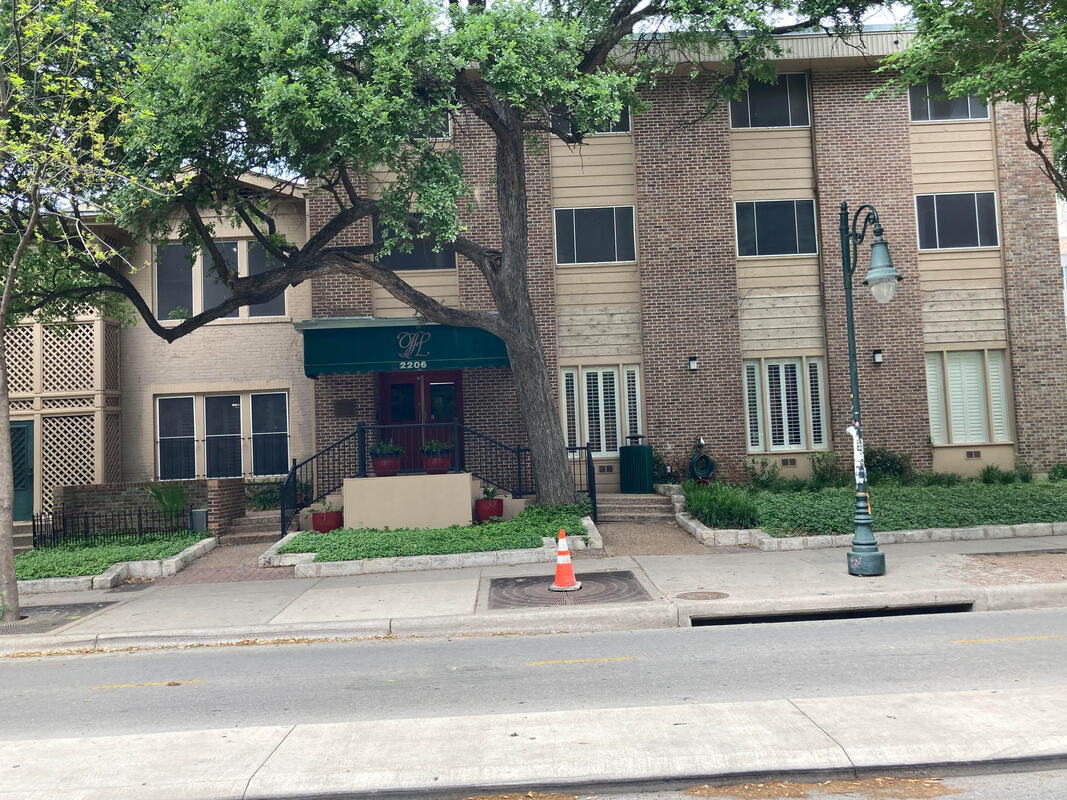
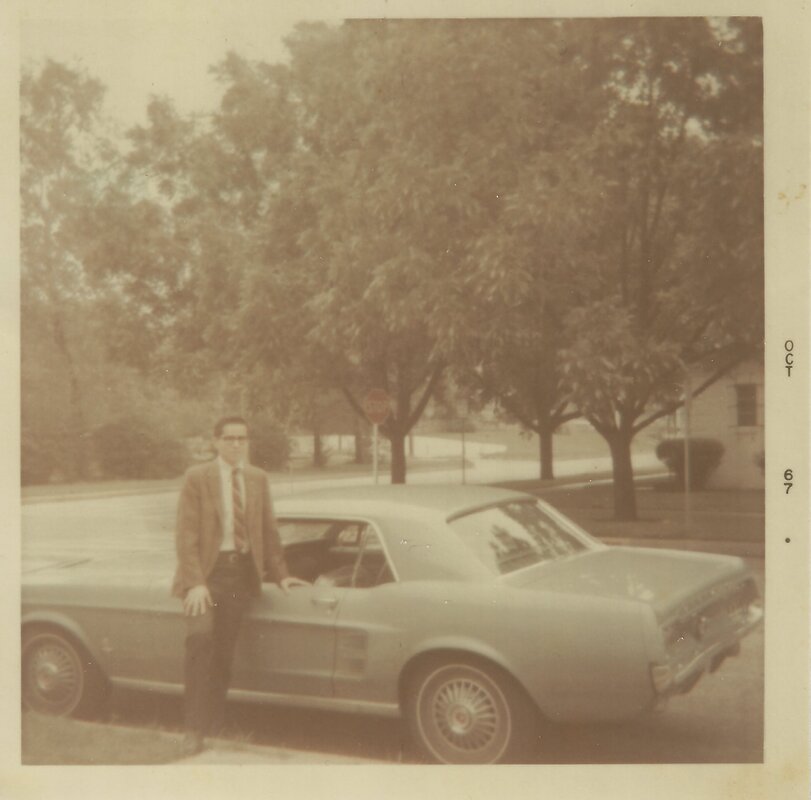
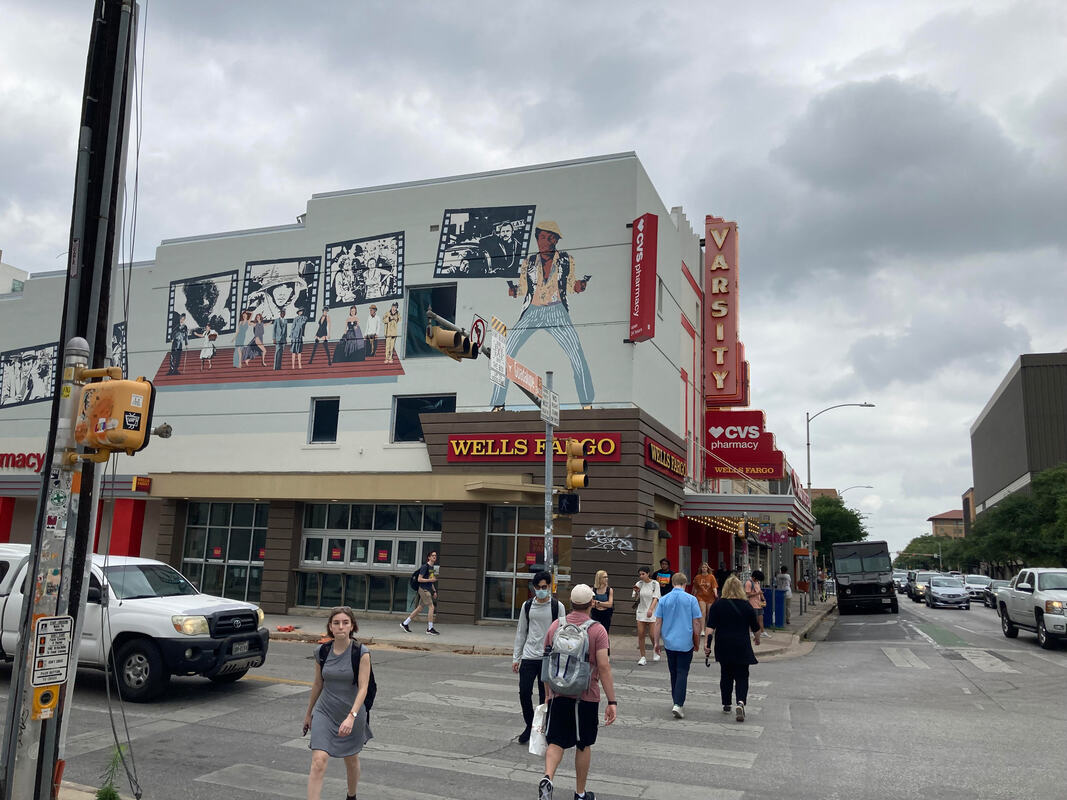
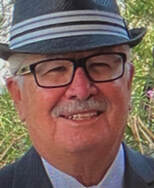



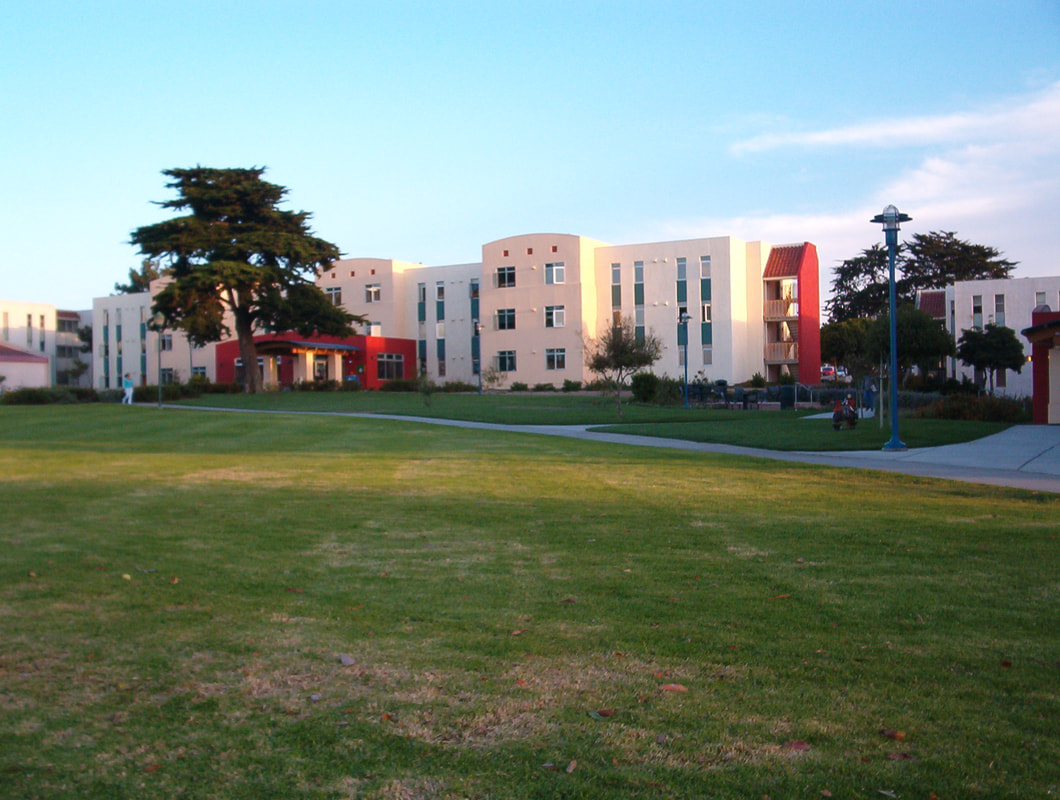
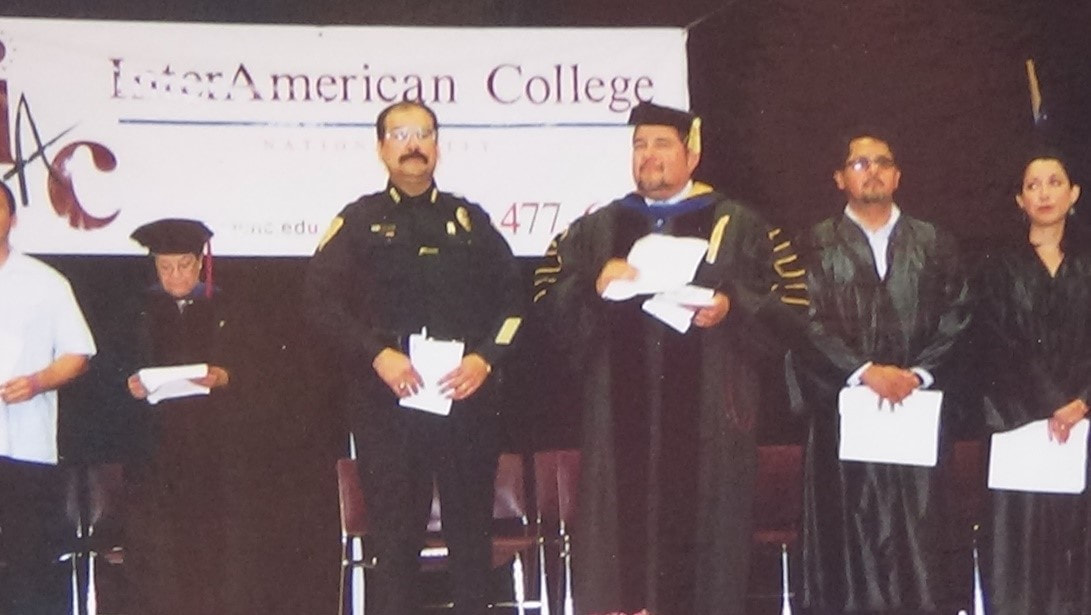







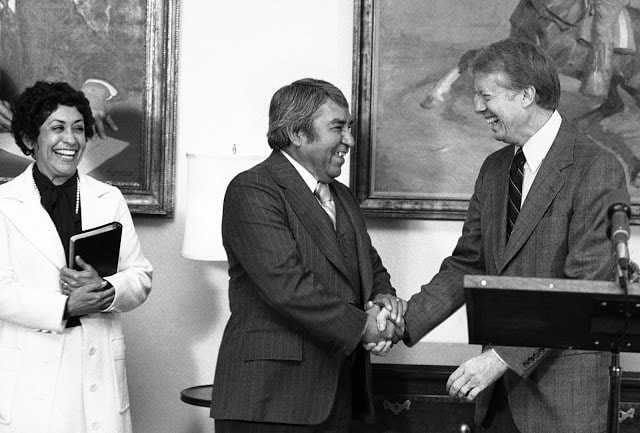

 RSS Feed
RSS Feed